Meet the Trainees
Graduate Students
Campbell, Kelsie
University of Southern California
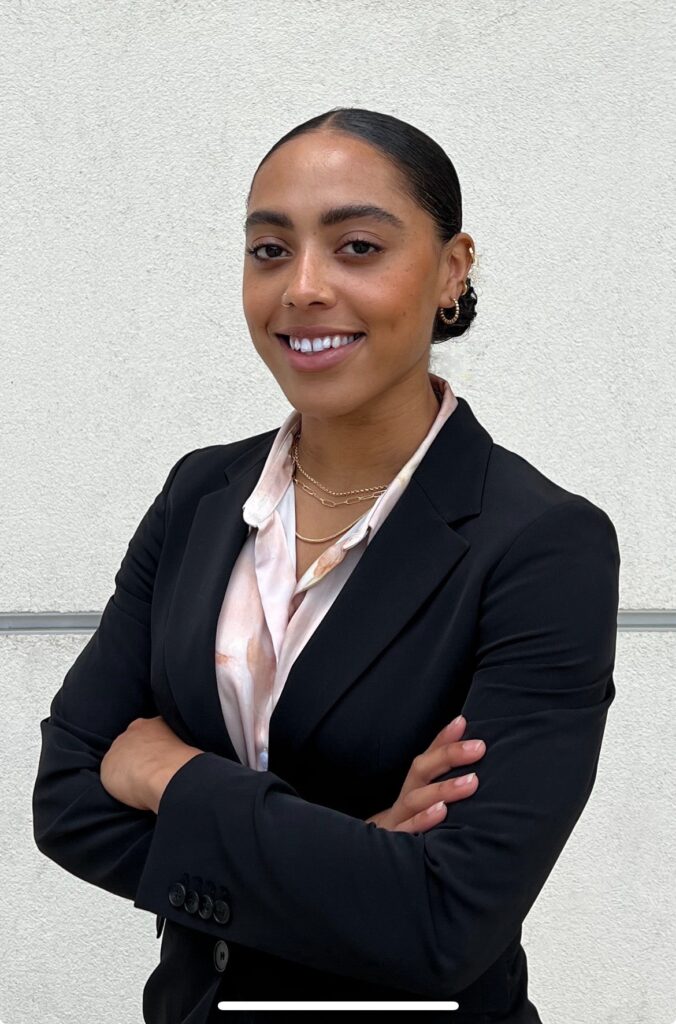
Kelsie Campbell is a second-year PhD student at the Keck School of Medicine of the University of Southern California in the Department of Population and Public Health Sciences. She earned her undergraduate degree in Biochemistry and two master’s degrees—one in Epidemiology and the other in International Business—at Florida International University. Kelsie’s research focuses on examining the social and clinical drivers of cancer health outcomes and disparities among medically underserved and minoritized populations. She is passionate about working to eradicate health disparities and to advance health equity. Kelsie aspires to leverage her expertise and passions to pursue a career dedicated to addressing systemic inequities in healthcare, ensuring that historically marginalized communities receive the resources and care they deserve. By bridging research and actionable solutions, she hopes to create meaningful and lasting impacts on public health policy and practice.
Quino, Juanita
University of Southern California
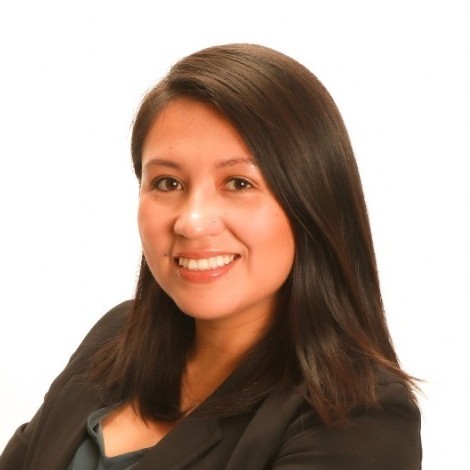
Liz’s work centers on community and creating health equity through education, outreach, and engagement. She is skilled in both qualitative and quantitative research and data analysis. As a lifelong learner, she is interested in continuing to learn about the different health disparities affecting underserved communities in urban and rural settings, and creating initiatives that address social determinants of health. Liz is committed to serving underserved and vulnerable communities. Her passion lies in community, mentorship, and encouraging students to pursue higher education.
Amponsah-Effah, Samuel
University of Southern California
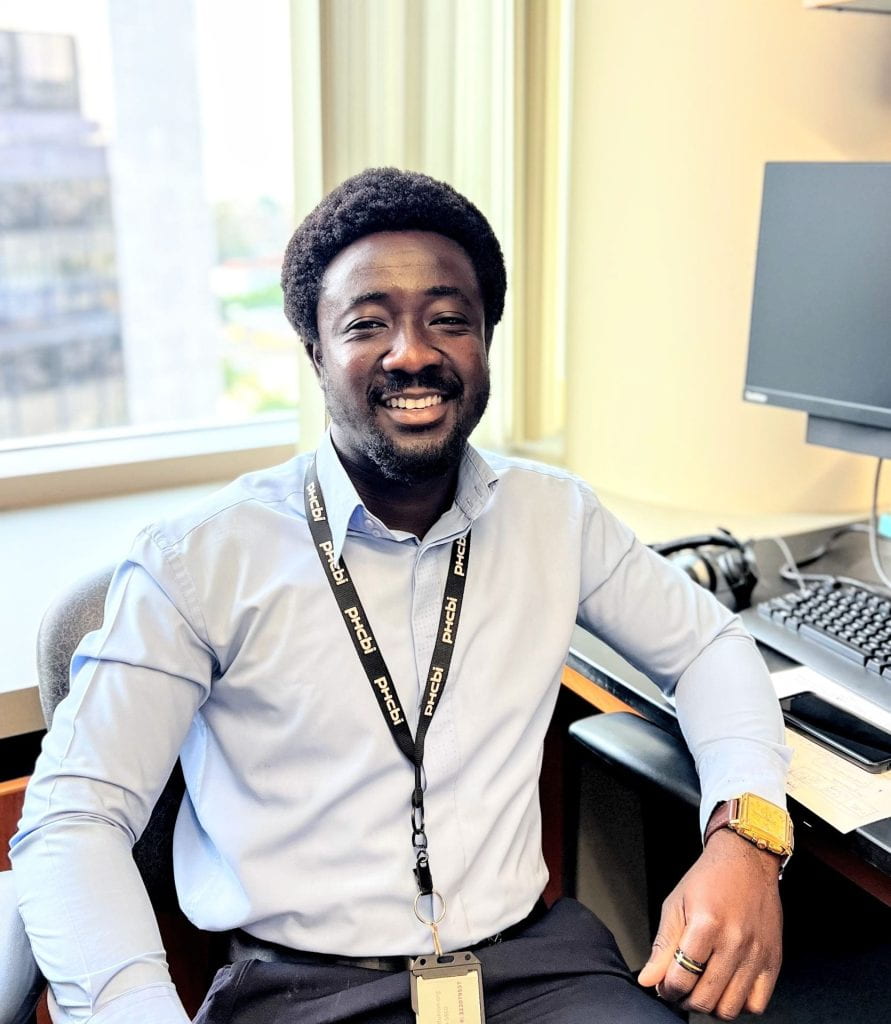
Samuel earned his B.S. with distinction at the Kwame Nkrumah University of Science and Technology in Kumasi, Ghana. He received the Distinguished Professor V.P. Dzogbefia Award for the overall top student in enzymology. His research project, co-mentored by Dr. David Tran and Dr. Peter Wang is focused on engineered immune cells for brain cancer immunotherapy. Outside the lab, he enjoys philosophy, spoken-word poetry, soccer, and piano playing.
Phillips, Kyle
University of Florida
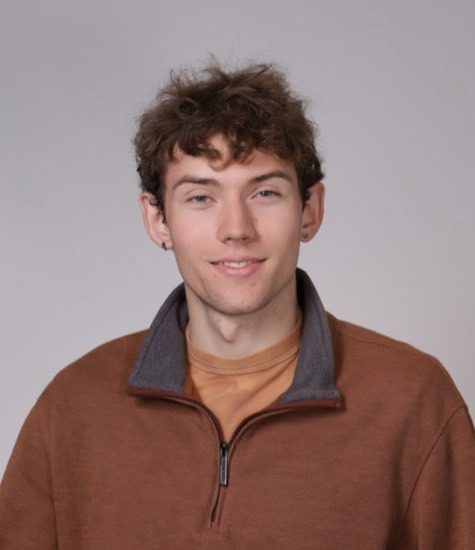
Kyle is a doctoral student in the biomedical engineering program at the University of Florida. His Research in Dr. Huang’s lab focuses on using bioprinting as a tool to create in vitro models to investigate lung cancer and metastasis. These models can be used to study and address cancer health disparities.
Alvarez, Diego
University of Southern California
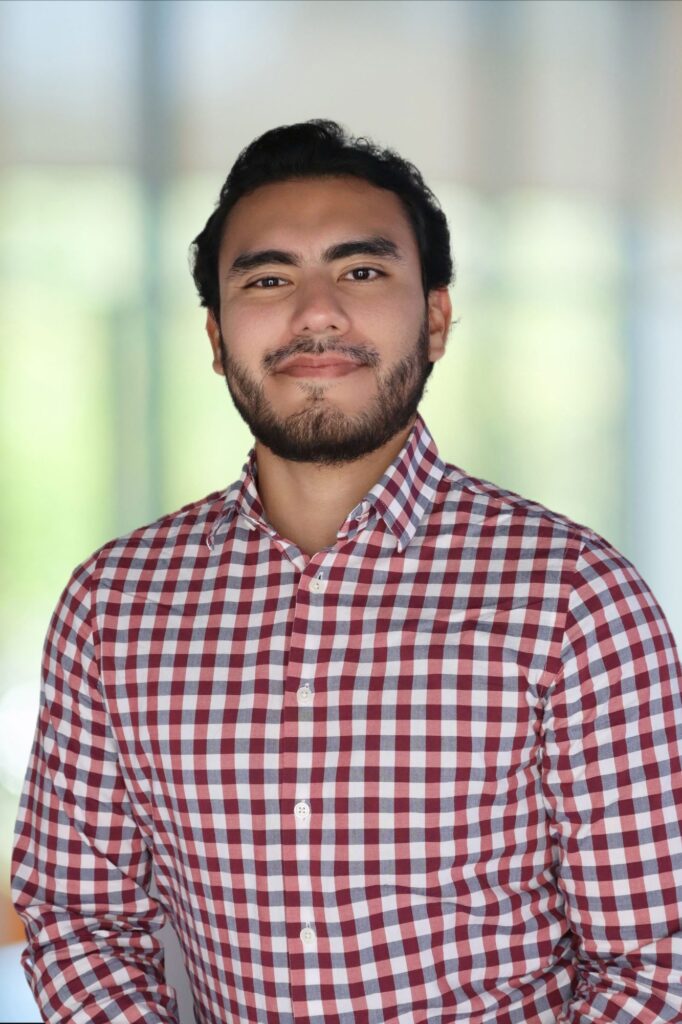
Diego Alvarez is a first-year PhD student at the Keck School of Medicine of the University of Southern California. He earned his medical degree from the Universidad de Sonora in Mexico and completed his specialty in Preventive Medicine, along with a Master’s in Public Health, at the Instituto Nacional de Salud Pública. Diego’s research focuses on the distribution, risk factors, and outcomes of oncologic diseases among Hispanic populations living in the United States. Driven by a commitment to health equity, he aims to make a meaningful impact by improving cancer prevention, treatment, and outcomes in underserved communities.
Marrero, Richard
University of Florida

Richard Marrero’s research efforts are focused on identifying genetic markers predictive of therapeutic outcome in pediatric cancer patients. His long-term goal is developing algorithms to incorporate pharmacogenomic markers with other prognostic factors to advance precision medicine in oncology. Richard earned his PharmD degree in 2019 from Palm Beach Atlantic University and is a licensed pharmacist.
Ruiz, Dayanara
University of Southern California
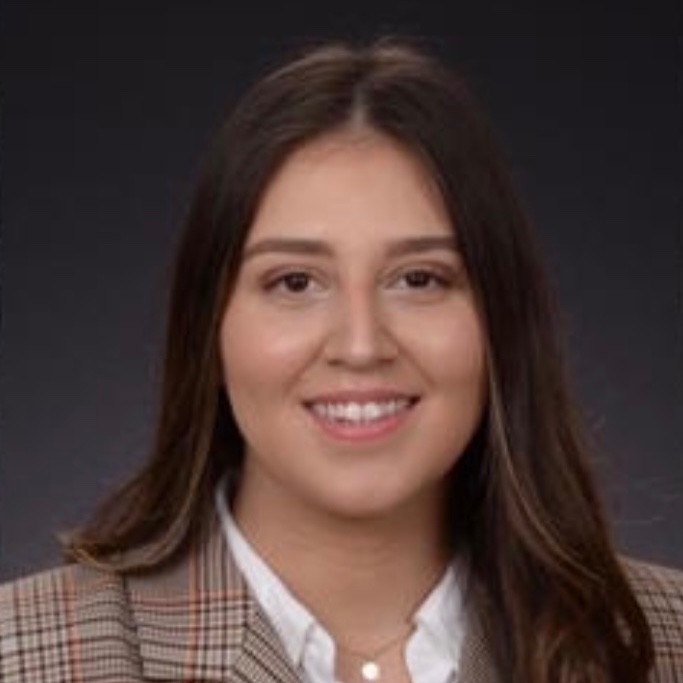
Dayanara received her Master of Public Health from the USC Keck School of Medicine, and my B.A. in Political Science from UCLA. Field experience includes policy research and analysis, community engagement, literature review, qualitative and quantitative analysis. Interested in the intersectionality between Mental Health and Public Health and pursuing a career as a health professional in program health equity, community promotion, program implementation and management. Additional areas of interest include Sports Medicine and Women’s Health.
Perkins, Corey
University of Florida

Corey is a fourth-year PhD candidate at the University of Florida in the Pharmaceutics department. Her research utilizes a human-derived 3D organoid assay to study the initiating event of pancreatic ductal adenocarcinoma (acinar to ductal metaplasia), the use of novel anticancer agents in inhibiting and reversing this event, as well as the racial outcomes that may be associated to the disparities linked to pancreatic diseases (acute/chronic pancreatitis, type 2 diabetes, pancreatic cancer). Her overall goal is to identify a race-related biomarker that could be used as a potential diagnostic marker for screening for these diseases and used in the synthesis of personalized treatments in the Black/African American community.
Esparza, Edgar
University of Southern California
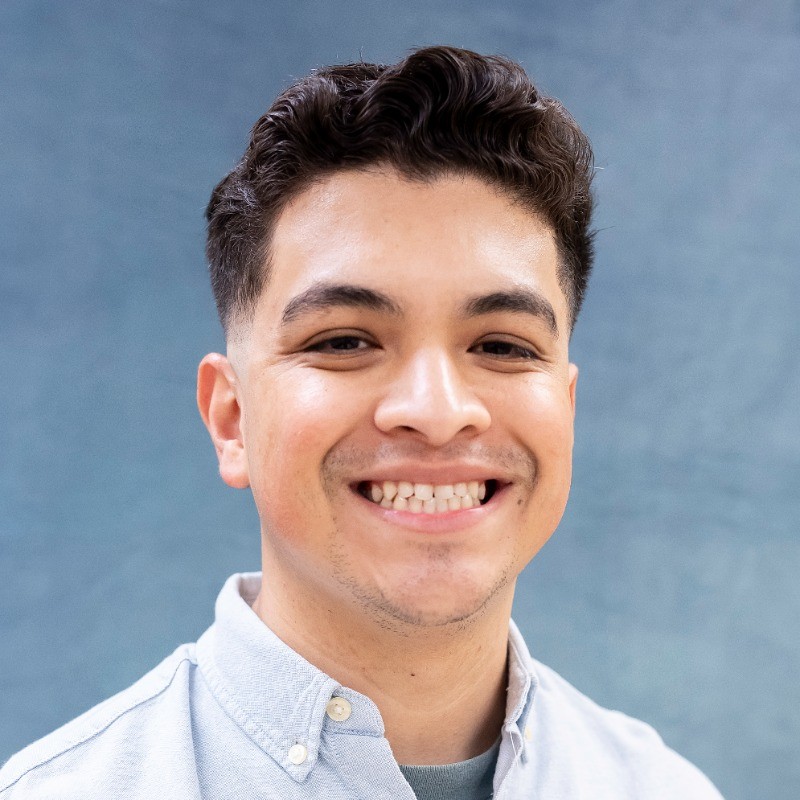
Edgar’s research interests revolve around developing therapies for cancer that can benefit a larger proportion of the population worldwide. He is currently working in a lab that studies how cancers dysregulate metabolism to promote disease progression with the aim to identifying novel treatments. Edgar’s project is focused on identifying metabolic vulnerabilities in hepatitis B induced hepatocellular carcinoma (HCC).
Velarde, Diego
University of Southern California

Diego is a Programs in Biomedical and Biological Sciences (PIBBS) Doctoral Student at University of Southern California. Diego works with our very own, Research and Education and Lung Project leader at the University of Southern California. in the Offringa lab, his research focuses n lung cancer. Diego is a CaRE2 graduate student.
Brown, Lakasjah
Florida A&M University
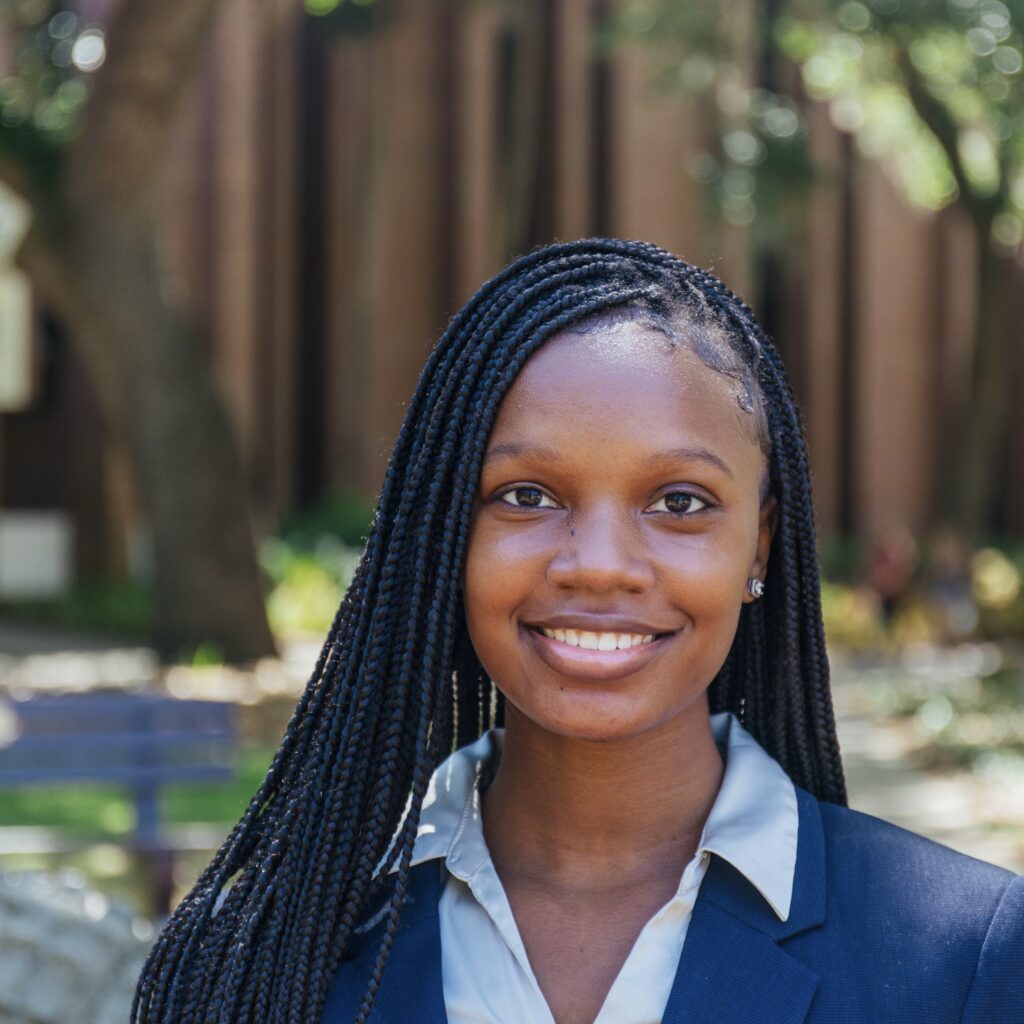
I am Lakasjah Brown, a second-year Molecular and Cellular Biology graduate student from Fort Lauderdale, FL. Under the guidance of Dr. Jillian Pope, my research focuses on the effect of Hunteria umbellata on intestinal cells and its relation to Colorectal cancer. This journey in Dr. Pope’s lab has not only enriched my professional and personal growth but also instilled a newfound passion for mentoring and training. This experience was instrumental in securing an interview at the University of Florida College of Dentistry, aligning with my aspirations to become a dentist and continuing research in the therapeutic applications of natural substances.
Gladstone, Matthew
University of Southern California
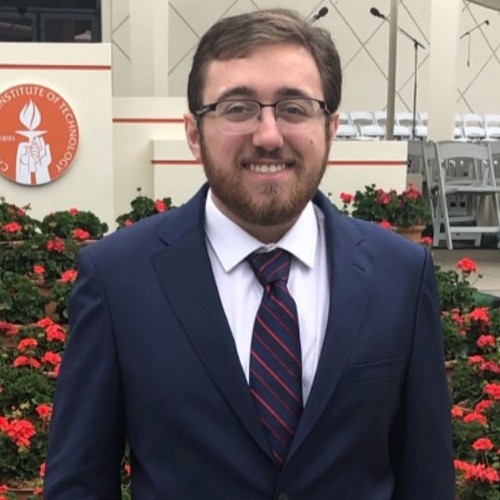
Matthew Gladstone is a PhD candidate at the Keck School of Medicine Programs Biomedical and Biological Sciences (PIBBS). Matthew works with our very own CaRE2 Research and Education Core and Lung Project leader, Dr. Offringa, at the University of Southern California. In the lab their research focuses on lung cancer.
Ofoso-Asante, Kweku
Florida A&M University

Kweku is a PhD candidate in Pharmaceutical Science at the Florida A&M University. He is currently working in Dr. Lamango’s lab on our CaRE2 Full Project 4, focusing on lung cancer health disparities.
Orellana Garcia, Carlos
University of Southern California
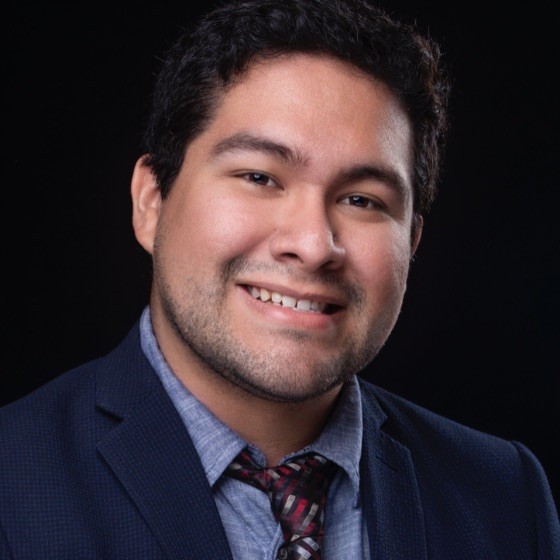
Carlos is an aspiring public health leader and an incoming doctoral student in Health Behavior Research. He is interested in pursuing cancer research, focusing on pediatric and adolescent/young adult cancer survivors. He states that “the use of intervention strategies to prevent, remediate, and improve the wellness outcomes of cancer patients is of particular interest to me.” He is passionate about developing programs to tackle health equity in underrepresented communities and provide health literacy to establish a healthier future for cancer survivors and their families. Carlos is under the CaRE2 mentorship of core leader, Dr. Ite Offringa.
Okoro, Joy
Florida A&M University

Joy’s career goal is to work as a pharmaceutical scientist specializing in the formulation of targeted nano-delivery systems for the treatment of pancreatic and colorectal cancers. To achieve this, currently she is optimizing the delivery of a novel chemotherapeutic agent in pancreatic cancer cell lines. More so, Joy hopes to use her expert to train other minority researchers in nano-drug delivery, cell-based assays, and ultimately strive to increase representation in this field.
Sanchez Mendez, Joel
University of Southern California
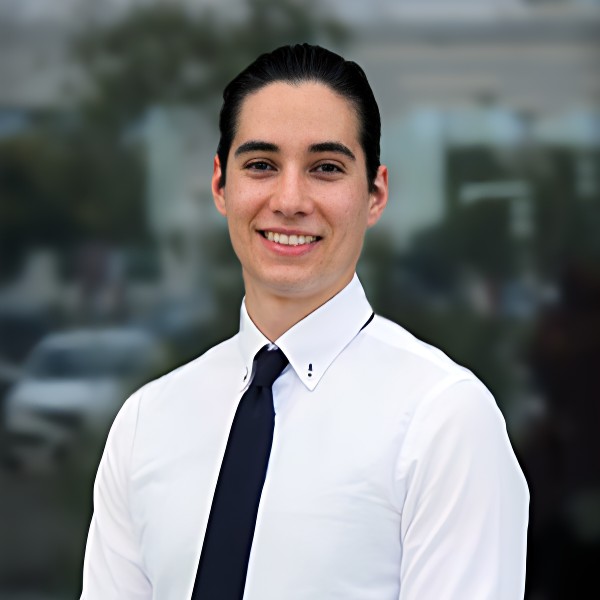
Joel is a new CaRE2 graduate student in the Department of Population and Public Health Sciences (PPHS) at the Keck School of Medicine in the University of Southern California (USC). He is focused on elucidating the genetical and environmental mechanisms associated with increased risk for chronic diseases and how these mechanisms differentially impact under-represented populations in the US. He is passionate about biotechnology, entrepreneurship and precision medicine.
Frimpong, Esther
Florida A&M University
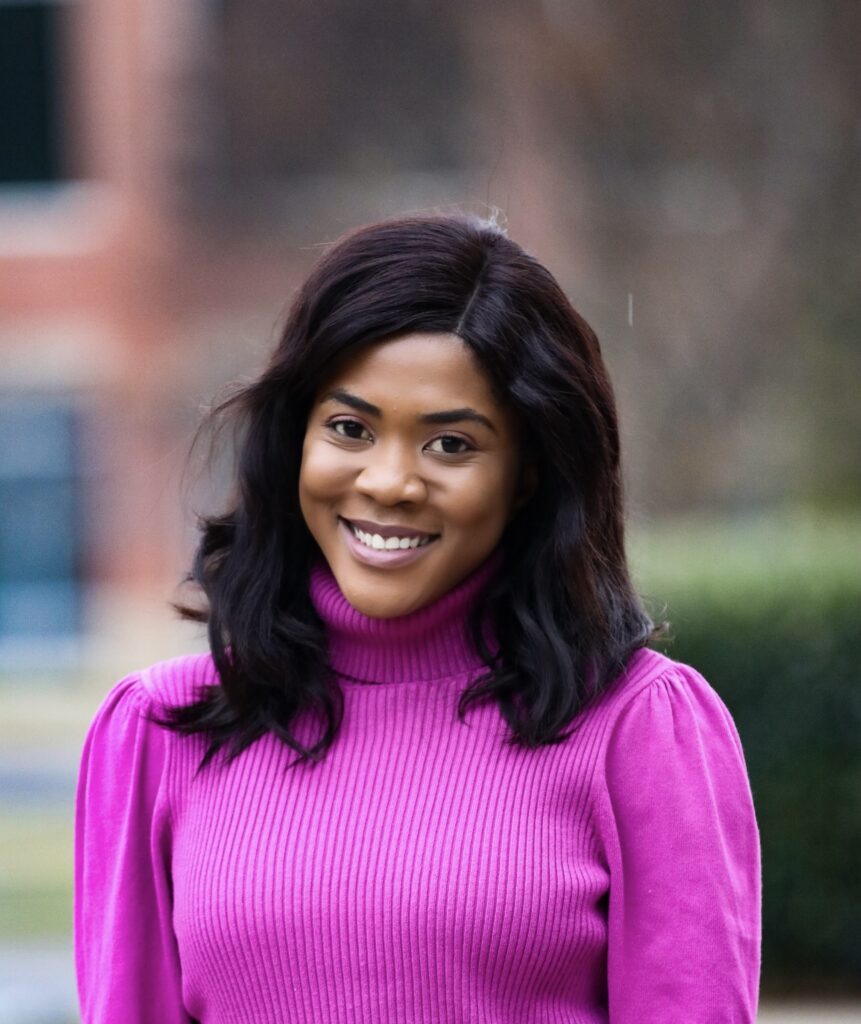
Esther is a Pharmaceutical Sciences (Pharmaceutics) PhD candidate whose research focuses on developing nano-delivery systems for the targeted delivery of pyrimidine nucleoside analogs in treating pancreatic cancer.
Arigbede, Olumide
Florida A&M University
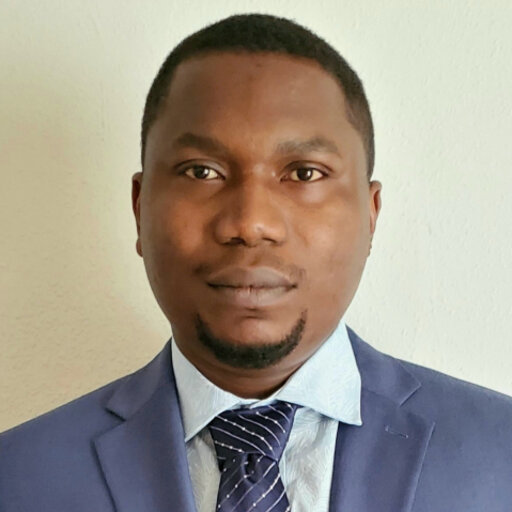
Olumide is currently a graduate research student at the Institute of Public Health, College of Pharmacy, Florida A&M University (FAMU). His degree track is epidemiology and biostatistics. His core areas of research interest include infectious disease, genetic/genomic chronic disease (cancer, CVD) epidemiology. He uses mathematical and statistical computing packages (SAS, R, PYTHON and SQL) to conduct analysis of his research. He works with our CaRE2 prostate project FAMU leader, Dr. Buxbaum.
Arizpe, Angel
University of Southern California
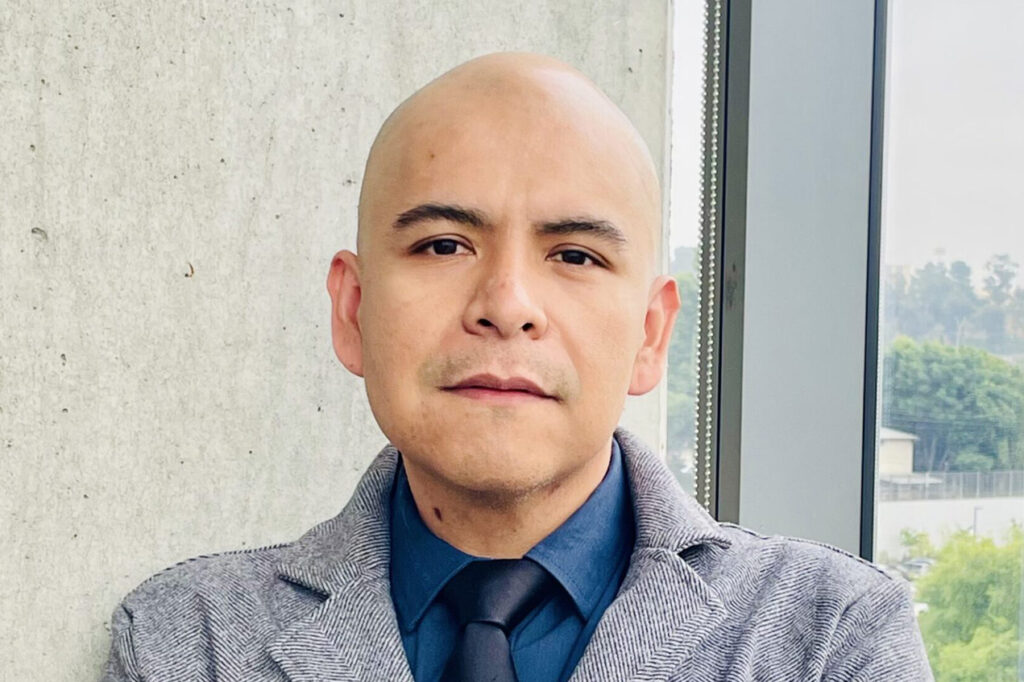
Angel is a PhD student studying Epidemiology at the University of Southern California. He has a passion for Public Health/Health Sciences. Through his studies, he uses statistics and works with data to investigate cancer health disparities among diverse populations.
Bulusu, Raviteja
Florida A&M University

Ravi Teja is a Graduate Student at Florida Agricultural and Mechanical University pursuing a PhD in Pharmaceutical Sciences. He is a CaRE2 graduate student working with Dr. Edward Agyare, a CaRE2 Pancreas Researcher and Early Stage Investigator.
Begay, Cynthia
University of Southern California
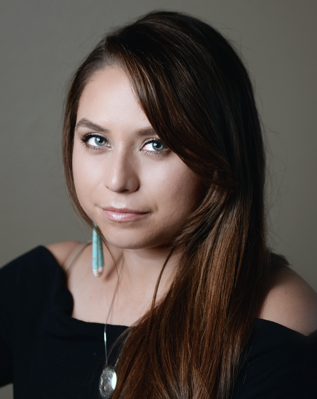
Cynthia Begay, MPH (Hopi/Navajo/Chicana) is a doctoral student in the Preventive Medicine Department. Under the guidance of her mentor Claradina Soto, PhD, MPH (Navajo/Pueblo), Cynthia’s focus is on community-based participatory projects surrounding cancer disparities among American Indian/Alaska Native communities throughout California. Through her involvement in CaRe2, Cynthia has had the opportunity to network with researchers at the National Cancer Institute and will be utilizing those connections to submit an F31.
Inkoom, Andriana
Florida A&M University

Andriana Inkoom is a doctoral candidate in the Agyare Research Laboratory. She holds a Bachelor of Science degree in Chemistry from the Kwame Nkrumah University of Science and Technology, Ghana, West Africa, and a master’s degree in Pharmaceutical Sciences from Florida A&M University.
Her research project encompasses a multi-disciplinary field requiring expertise in formulation science, medicinal chemistry, engineering, pharmaceutical compounding, tissue culture, health disparity research, and pharmacological techniques. In her current research, she focuses on enhancing already existing chemotherapeutic drugs for the treatment of pancreatic cancer via chemical synthesis, characterization, and development into nano-delivery systems for targeted therapy. Outside of research, she enjoys reading, cooking, coding, painting, and meeting new people.
Lattimore, Chayil
University of Florida
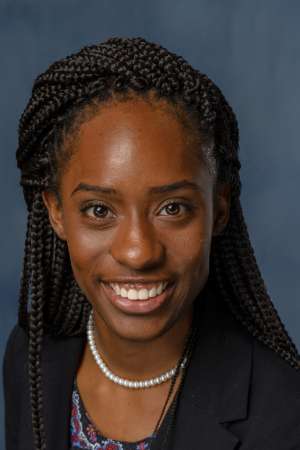
Chayil currently works with Dr Fredenburg, a CaRE2 ESI, and CaRE2 project PI. Chayil’s lab project involves a study of the differential expression of miR-9-5p in vitro LSCC cell lines derived from black patients and white patients. CaRE2 has shown Chayil that not only does she have a passion for research, but she is particularly interested in the manner in which this research is translated to minority communities. Chayil is currently working towards her Cancer Biology PhD at the University of Florida.
Gedeon, Shasline
Florida A&M University

Shasline is a CaRE2 graduate student at Florida A&M University. She is a PhD candidate, focusing in Pharmaceutical Sciences, Medicinal Chemistry. Her current study is titled “The Design and Synthesis of Novel N-Substituted-[Benzoylamino]-5-Ethyl-1,2,3,6-Tetrahydropyridines as Potential Anti-Breast Cancer Agents.”
Ramos Correa, Michele
University of Southern California
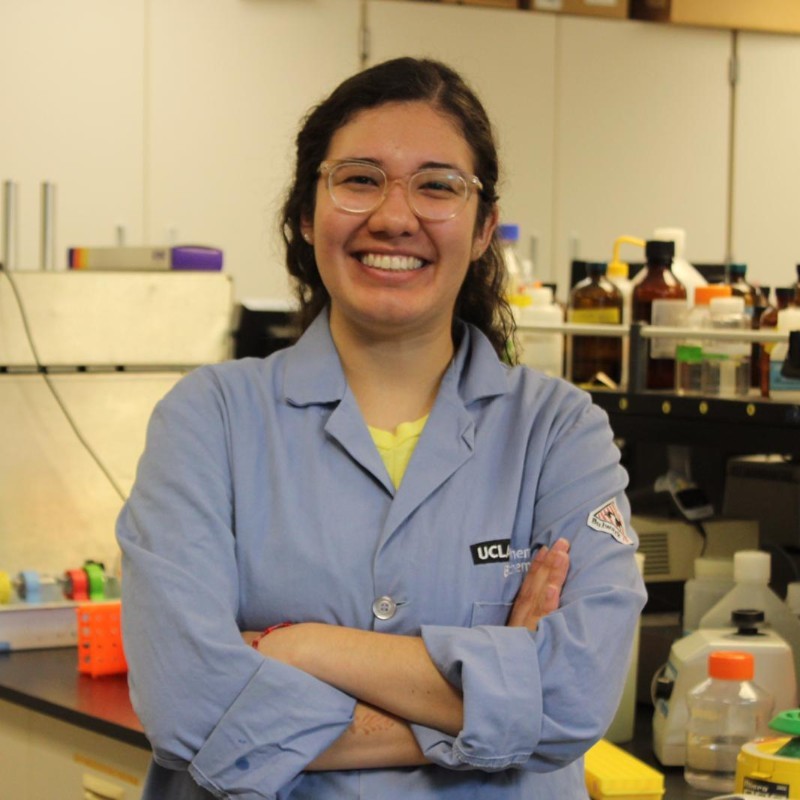
Michele is a Graduate Student at Keck School of Medicine of the University of Southern California. She is a CaRE2 graduate student working with Dr. Marconett, a CaRE2 Early Stage Investigator.
Ogungbola, Opeyemi
Florida A&M University

Opeyemi is a graduate student at Florida A&M University working in CaRE2 lab with Dr. Buxbaum. His background is properly ICT and research. He holds a degree in OND, HND, Bsc and Msc in Statistics, Computer Sciences and, MPH.
Webb, Michelle
University of Southern California

Michelle Webb is a 4th year Cancer Biology and Genomics PhD Candidate with bioinformatics focus in Dr. David Craig’s lab at USC. Current research area includes methods development for spatial transcriptomics datasets. Past experience with analyzing bulk DNA (whole genome, exome) and RNA, single cell RNA, long read RNA, and spatial transcriptomics sequencing data. Skills include python/R/bash scripting, database management, genomic analysis pipeline development, and data visualization.
Guy, Taylor
Florida A&M University

Taylor Guy is a CaRE2 graduate student working on her Master of Public Health from Florida A&M University. She worked with our CaRE2 prostate team, Dr. Buxbaum at Florida A&M University. She currently works for the State of Florida Department of Health as a Diabetes Analyst.
Castillo, Jonathan
University of Southern California

Jonathan is a graduate student at the University of Southern California where he studies the molecular origins of lung adenocarcinoma in Dr. Crystal Marconett’s lab. Specifically, he studies how the dysregulation of long non-coding RNAs leads to the progression of cancer. He hopes to use this information to better utilize drug therapies for better survival outcomes. The CaRE2 program has provided him with valuable educational opportunities, such as in clinical trial design and in bioinformatics training. In addition, CaRE2 has provided collaborative opportunities with other faculty to better pursue my research question.
Escobedo, Patricia
University of Southern California
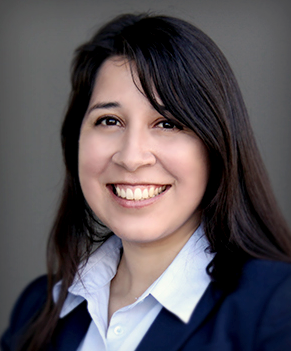
Patricia is a doctoral student in the Health Behavior Research Program in the Department of Preventive Medicine at USC. Her research interests include health disparities, social determinants of health, tobacco control and substance use. As a CaRe2 participant, Patricia has been able to further explore and examine cancer disparities in vulnerable communities through presentations and discussions, now has greater access to training, conference, and scholarship opportunities, and has expanded her professional network.
Ndemazie, Nkafu Bechem
Florida A&M University
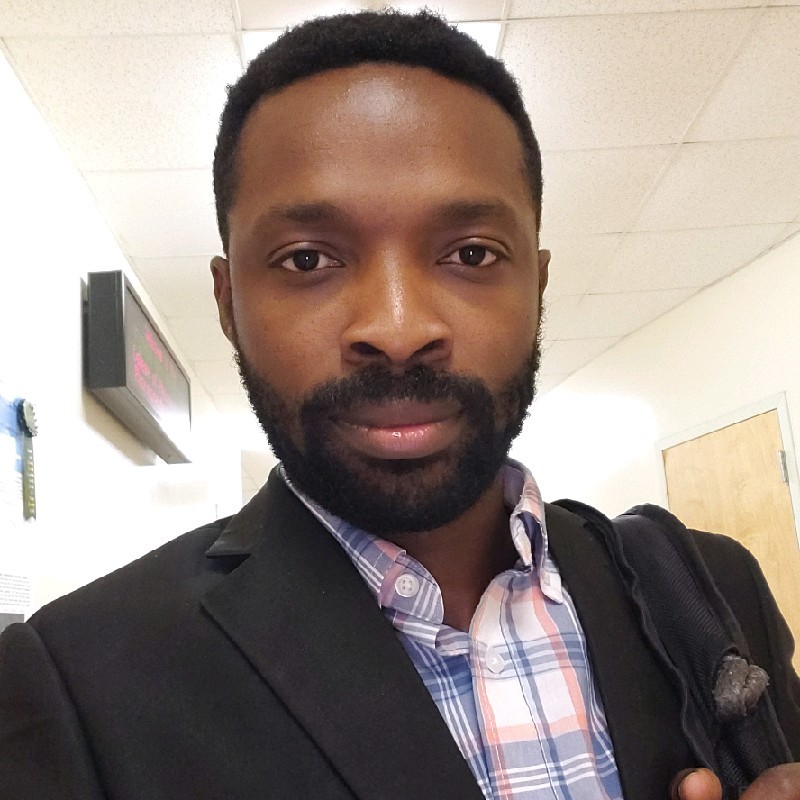
Bechem is a PhD trainee working in Dr. Agyare’s CaRE2 lab on pancreas cancer. He is an ECFMG certified foreign medical graduate, based in the US with a Masters degree in Public Health (International Health) from the University of Nottingham. His research focus is on the racial disparity in drug discovery and delivery for pancreatic cancer. Bechem is passionate about the use of pharmacogenomics to optimize precision medicine to combat racial disparity in cancer treatment
Navarro, Stephanie
University of Southern California

Stephanie Navarro is an MD/PhD student at the Keck School of Medicine of the University of Southern California, with PhD studies in Epidemiology. Stephanie hopes to one day contribute to ensuring quality health care for all patients as a primary care physician and health services researcher. She recieved her undergrad at Stanford University, with a B.A. in Human Biology.
Fernandez, DJ
University of Southern California

DJ’s research focuses on uncovering details of Human Papillomavirus (HPV) entry into epithelial cells. Considered a novel, ‘macropinocytosis-like’ endocytic mechanism, understand the elusive process of HPV entry into host cells has been a major focus in HPV research for over 30 years. Using novel forms of microscopy coupled with virological assays, his work tackles big questions in virology and cell biology regarding endocytosis of pathogens. CaRE2 has provided exposure to health disparities, something that was very much emphasized the past year with the COVID pandemic.
Ihenacho, Ugonna
University of Southern California

Ms. Ihenacho is a PhD student of Epidemiology at the University of Southern California. She is a recipient of a 2019 Predoctoral Fellowship from the Tobacco-Related Disease Research Program, a grant funded through California State Proposition 99, The Tobacco Tax and Health Protection Act. She is developing her dissertation research to evaluate the effects of smoking on breast cancer risk and hormone levels in young women. In the future, she plans to continue to explore risk factors in cancer epidemiology among women and especially projects that reduce health disparities and support tobacco control/cessation efforts.
Jackson, Michon
Florida A&M University

Michon is a PhD candidate studying pharmacy health outcomes within the Division of Economic, Social and Administrative Pharmacy at Florida A&M University (FAMU). She has been thoroughly trained in the execution of economic analyses and the appropriate use of various research methods to aid stakeholders in better decision making, health outcome improvements and the quality assessment of various clinical indicators. Having completed all required coursework for my degree, she has begun to work in earnest on her dissertation, which focuses on identifying prognostic biomarkers and potential therapeutic targets in women with cervical cancer.
Her passion for health outcomes research, especially within female and minority populations, led her to focus more specifically upon ways to close the disparity gaps in treatment and outcomes success for women diagnosed with cervical cancer. Research routinely shows that despite comparable rates of screening via Pap Smear and/or cytologic exam, women of color continue to present to providers with more advanced stages of disease at earlier ages. Additionally, within the United States, women of color are found to have disproportionately higher rates of cervical cancer-related morbidity and mortality, regardless of treatment modality or stage of diagnosis.
One of the major tools being used in cancer research today, involves the use of gene expression profiling (GEP) data to identify novel molecular targets of carcinogenesis. Though invaluable in predicting and detecting cancer at earlier stages, this technology has not been validated for use in a racially diverse population. As such, cancer mortality gaps have continued to widen. Her research therefore focuses upon examining the racial/ethnic differences in overall patient outcomes based upon the prognostic value of GEP in women with cervical cancer. In the future, she hopes that her research may aid in closing the disparity gaps in cervical cancer outcomes, as well as contribute in the process of updating guidelines for the use of GEP data in more racially diverse populations.
Martinez, Bibiana
University of Southern California
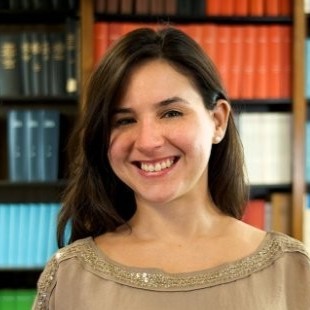
Bibiana is a public health researcher with a background in anthropology, human rights and reproductive health advocacy, currently focused on understanding how climate change emergencies impact healthcare utilization in vulnerable populations. her skills include data analysis (quantitative, qualitative, and geospatial), program management, and program evaluation. Bibiana is bilingual, bicultural, and well versed in working with Latino communities in both the East and West Coasts.
Quashie Jr, David
Florida A&M University
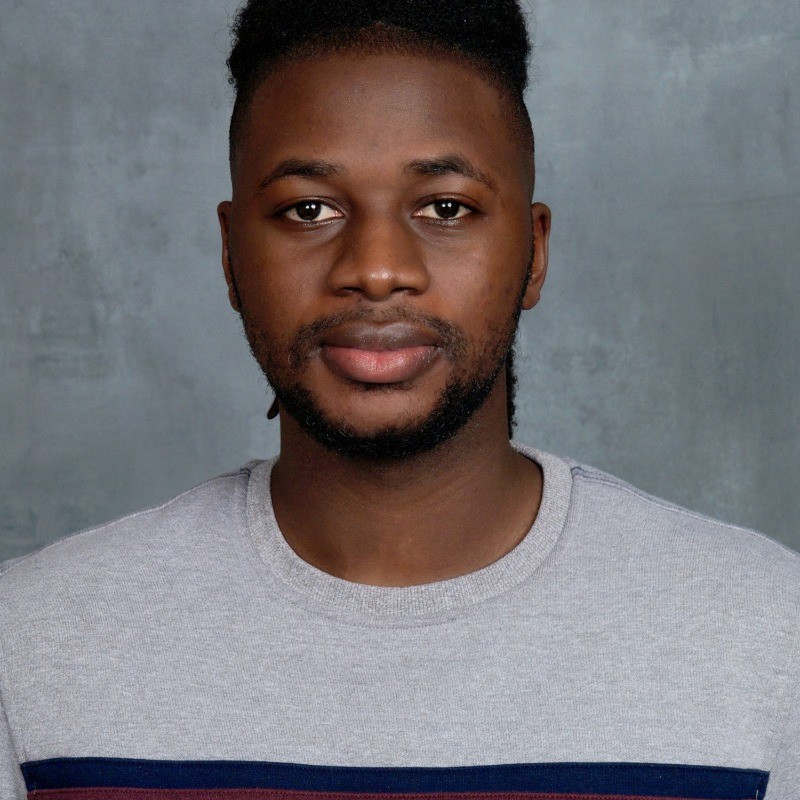
David is an engineer who researches innovative, and biocompatible micro-devices for biomedical sensing and transport applications. Through his graduate school experience, David has learned to integrate multidisciplinary research techniques such as micro-fabrication, rheology, and image processing for biological applications, and he is excited to contribute his expertise and leadership skills as a research scientist/ engineer.
Ochoa, Carol
University of Southern California

Carol Ochoa is a doctoral student at the University of Southern California in Health Behavior Research. She earned a BA in Latin American Studies from the University of California Los Angeles (UCLA) and an MPH in Behavioral Science and Health Education from Emory University. She is a member of the American Association for Cancer Research and American Association for Cancer Education. Her research focuses on issues related to health behaviors and the role of social determinants in promoting health and improving health equity among underserved populations, particularly in cancer prevention and control and immigrant populations.
Prior to starting her doctorate training Carol served as the Cancer Survivorship workgroup ORISE Fellow at the Centers for Disease Control and Prevention where she focused on cancer survivorship research, surveillance, and programs. She has also collaborated with the American Cancer Society to investigate psychological factors that impact cancer health disparities, cancer survivorship, and patient outcomes.
Joseph, Verlin
University of Florida

Verlin is a doctoral candidate in the department of Epidemiology within the College of Public Health and Health Professions. His research seeks to understand the associations between marijuana use and pain. Verlin is currently funded by an F-31 dissertation fellowship award through the National Institute of Drug Abuse entitled “Patterns of marijuana use for HIV/AINDS pain management: a mixed methods approach” . As part of his dissertation, Verlin will identify predictors of severe pain, correlates of cannabis use disorder, and conduct thematic interviews to better understand how individuals are using marijuana to manage pain. Prior to attending the University of Florida, Verlin received a Masters of Public Health and a Bachelor of Science in allied health from Florida Agricultural & Mechanical University. Upon completing his Ph.D. Verlin intends to acquire a postdoctoral position to further his development as an independent researcher.
Ortiz, Veronica
University of Southern California
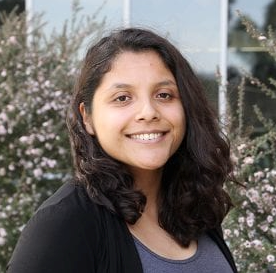
Veronica is working on her PhD in breast cancer metastasis in the laboratory of Dr. mi Yu at the Norris Comprehensive Cancer Center. She is excited about the opportunity to learn about health disparities and the added networking opportunities.
Ramirez, Cynthia
University of Southern California
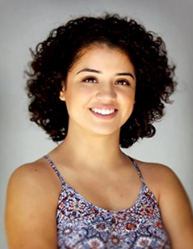
Cynthia is a doctoral student in the Health Behavior Research PhD program at Keck School of Medicine of USC. She is part of Cohort 3.
Zeledon, Ingrid
University of Southern California

Alford, nicholas
Florida A&M University
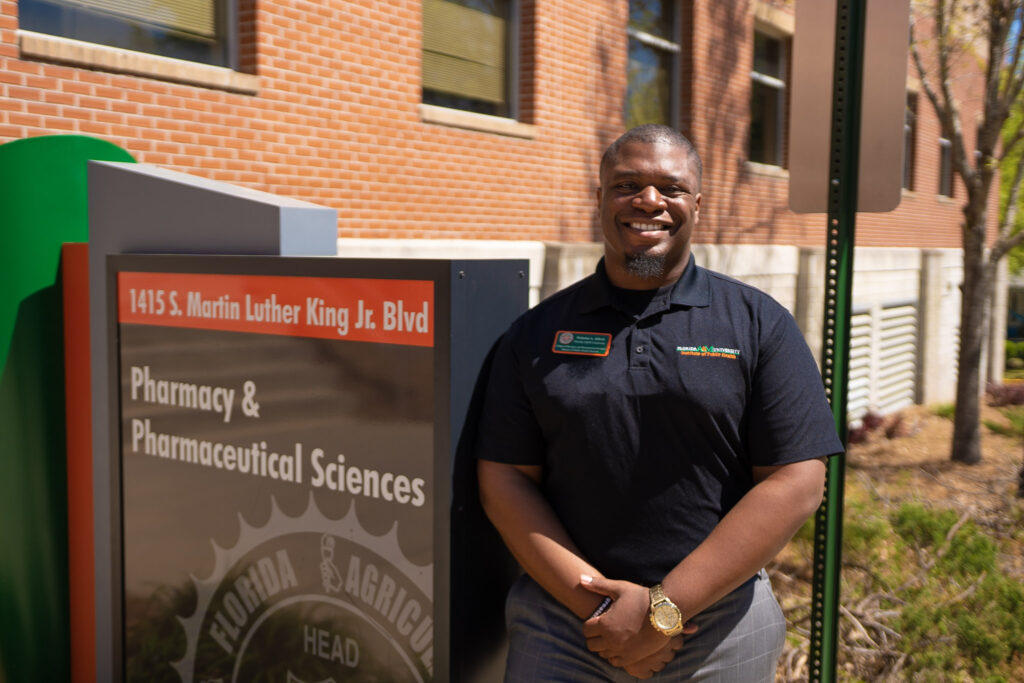
Nicholas Alford is a 4th year Doctor of Public Health student at Florida Agricultural & Mechanical University where his current research focuses on masculinity and healthcare utilization. Nicholas has received his MPH in Health Policy from FAMU where his research focused on Patient-Provider communication and prostate cancer screening. He also has a bachelor’s degree in healthcare management and marketing from the University of Louisiana at Monroe. Currently, he serves as the Health Improvement Planning Section Administrator at the Florida Department of Health. Outside of work, Nicholas enjoys cooking, watching thrillers, and traveling.
Postdoctoral fellows
Gouegni, Edwige Flore
Florida A&M University
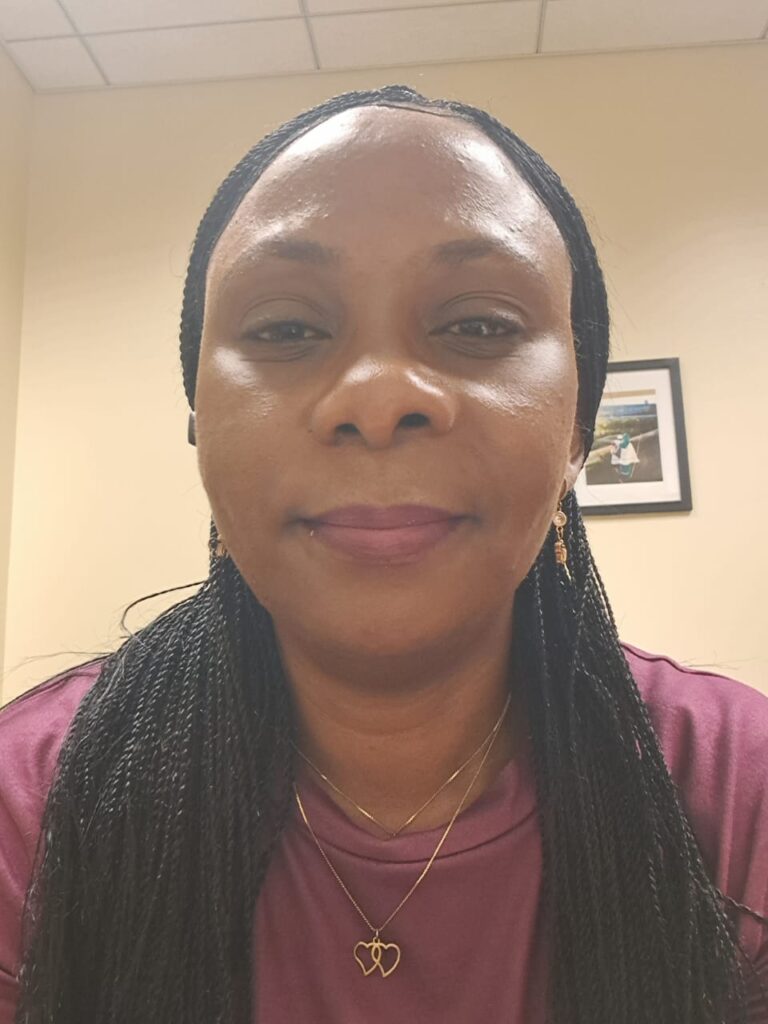
Dr. Gouegni Edwige Flore is the first postdoctoral fellow at Florida A&M University and a trainee in the CaRE2 Health Equity Center. She is a molecular and computational biologist with expertise in biotechnology and single-cell RNA sequencing (scRNA-seq) analysis and bioinformatics. Her current research explores the identification and computational validation of differentially expressed genes as potential drug and vaccine targets in prostate cancer. With a passion for translational genomics and health disparities research, Dr. Flore is dedicated to leveraging computational tools to inform precision medicine and train emerging scientists in genomic data science.
Garcia, Samantha
University of Southern California
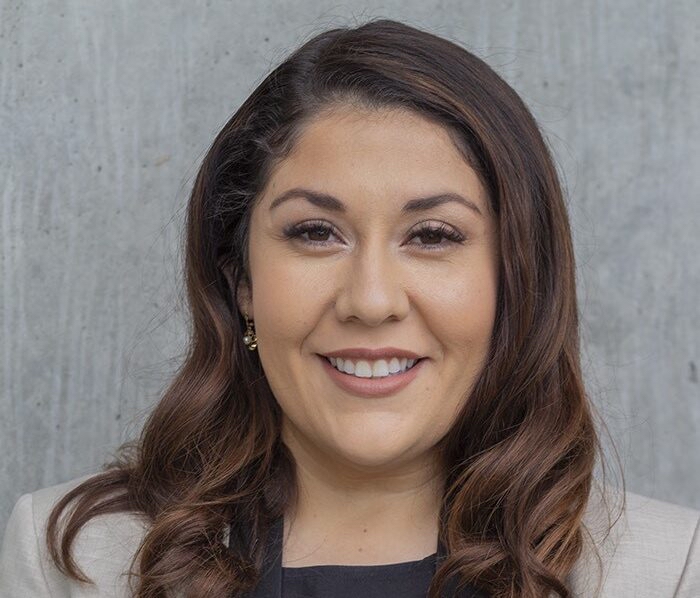
Dr. Garcia’s research focuses on advancing the understanding of mechanisms contributing to Latino health disparities and intervening with efficacious health behavior interventions utilizing health communication strategies. Her research primarily involves developing, implementing and testing community-based interventions using mixed methods research. Currently, Samantha is investigating intrapersonal, sociocultural and structural drivers of HPV-vaccination disparities among Latina sub-groups. Using a multi-level approach, investigating the influence of HPV message framing and strategy appeals on HPV vaccination behavior.
Trejos Kweyete, Monika
University of Florida
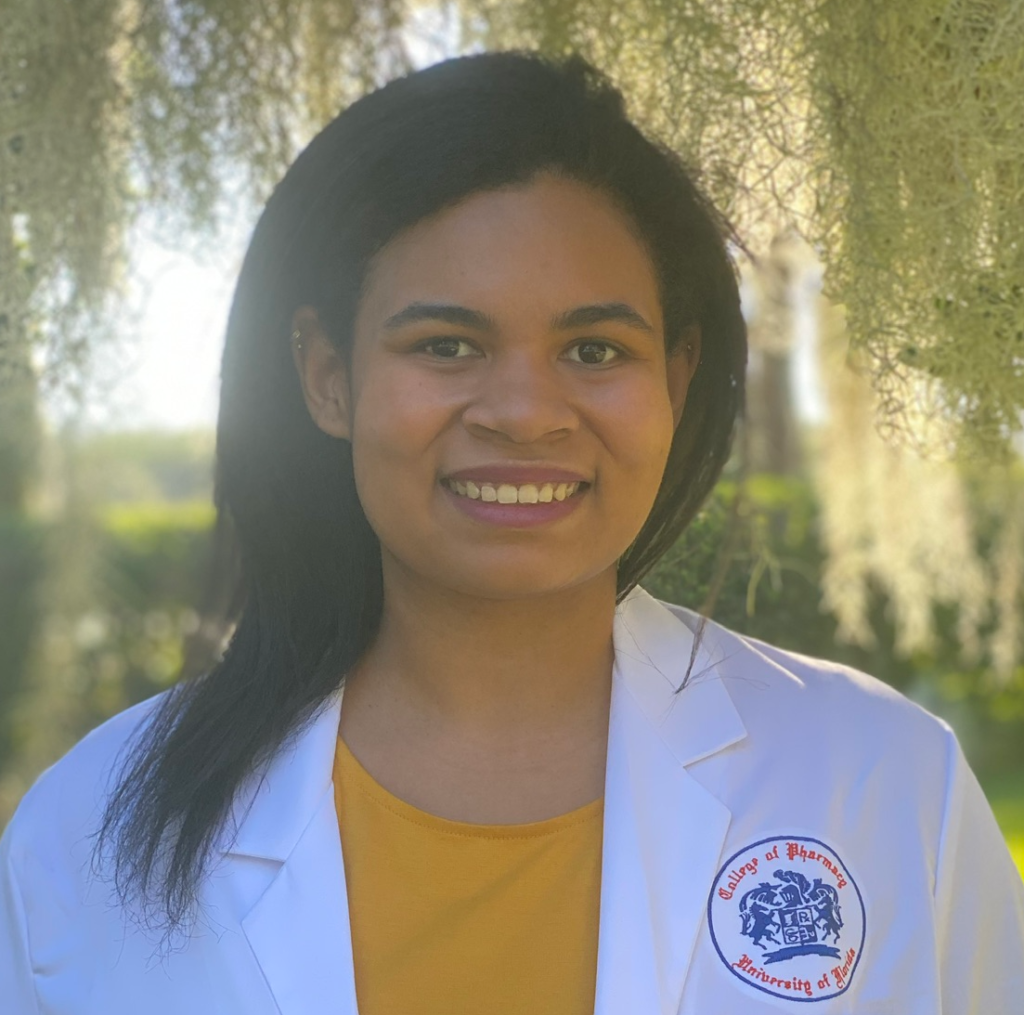
Monika Trejos Kweyete, PharmD is a Health Equity Postdoctoral Fellow at the University of Florida College of Pharmacy joining the Department of Pharmacotherapy and Translational Research. Her current research focus is on medication use disparities. Outside of research, she enjoys cooking, exploring new restaurants, and working on new crafting projects.
Sanogo, Fatimata
University of Southern California

I am an epidemiologist with a specialization in psychological and physiological stress research and cortisol measures in the context non-communicable disease (such as diabetes, cancer, hypertension, etc.) My extensive background in biomedical research, coupled with over a decade of experience as a yoga and meditation teacher, has uniquely positioned me at the intersection of epidemiology, physiology, immunology, biochemistry, genetics, integrative medicine, and whole person health. As an expert in systematic reviews and meta-analysis, I have honed my skills in synthesizing evidence to inform evidence-based medicine.
Currently, a Senior Research Associate at the Community Health Outcomes, Innovation, Impact, and Equity Studies (CHOICES) Lab, my research focus is on identifying the multifaceted determinants of cancer care disparities. This includes the identification of social, behavioral, environmental, and psychological risk factors, as well as the engagement and education of healthcare providers, and the empowerment of diverse communities to reduce cancer care disparities.
Fedd, Andre
University of Florida
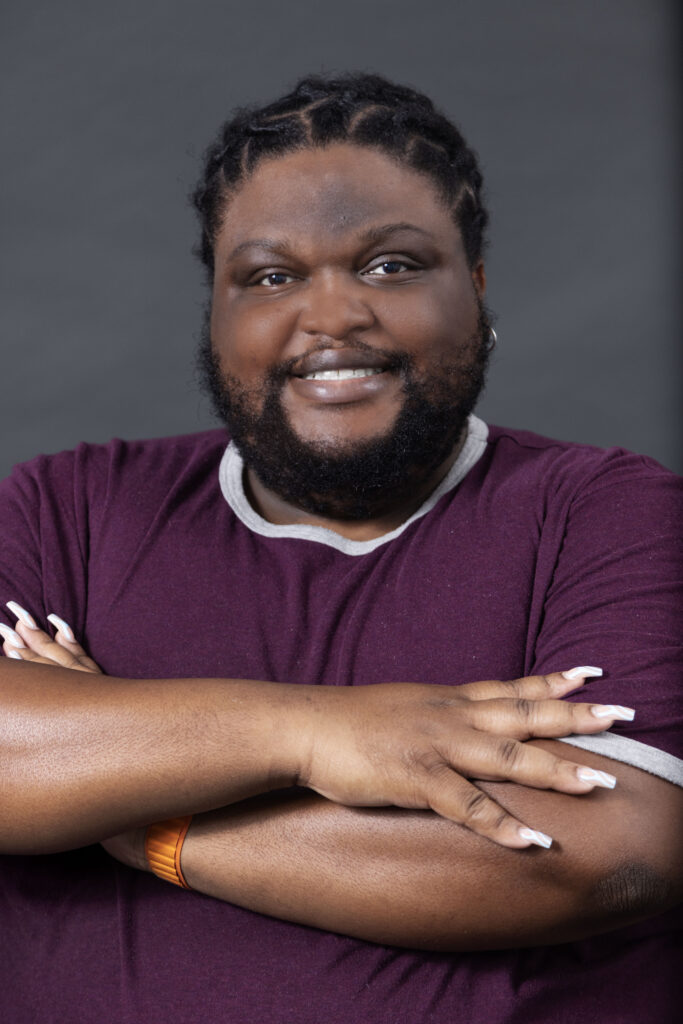
My program of research covers two broad areas: a) explore how individuals think and talk about sex in supportive context; and b) use precision message design techniques to design, disseminate, and implement communication interventions to increase knowledge about cancer prevention. These areas use an interdisciplinary theory-driven approach to answer challenging questions about how communication research can be leveraged to increase better relational and health outcomes.
Cardenas-Iniguez, Carlos
University of Southern California
Carlos Cardenas-Iniguez (pronouns he/him/his) is a postdoctoral scholar at the Herting Lab in the Keck School of Medicine of University of Southern California. Carlos earned his PhD in Psychology and Integrative Neuroscience from the University of Chicago in 2019. His research focuses on using the ABCD Study dataset to explore the impact of social stratification on the environments in which people live, and how these environments, in turn, impact neural and cognitive development and mental health. His research interests also include the implementation of spatial analysis, critical race theory, and anti-racism principles in neuroscience/psychology research.
Valencia, Connie
University of Southern California
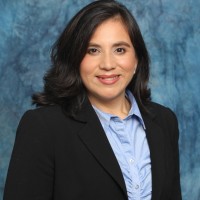
Dr. Connie Valencia was born and raised in Boyle Heights. She is a first-generation Latina college graduate and eldest of three. Connie obtained her BS from UCLA, her MPH at Cal State Fullerton and recently completed her PhD at UCI from the School of Public Health. Connie is the proud mother of two children, who are also part of CASA0101 and married to a local Boyle Heights native. On her free time Connie enjoys writing, cooking with her kids, dancing and running.
Awunti, MegCholack
University of Florida

Meg Awunti is from Charlotte, North Carolina. She completed her Pharm.D. at Wingate University School of Pharmacy in Wingate, North Carolina. She has joined the department of Pharmacotherapy and Translational Research as the inaugural Fellow in Health Equity, working with Dr. John Allen at the Lake Nona campus.
Fullwood, M. Dottington
University of Florida

Dr. Fullwood is a behavioral scientist completing his postdoctoral fellowship at the University of Florida.
Neely, Aaron
University of Southern California

Aaron Neely is a postdoctoral fellow at the University of Southern California Keck School of Medicine. He works with our CaRE2 member, Dr. Offringa, in her lab focusing on lung cancer.
Basanez, Tatiana
University of Southern California

Tatiana has a PhD in applied social psychology with specialized training in cross-cultural psychology and media effects. BA in social sciences from ITAM in Mexico City. In the past, she worked as a journalist in Mexico, news anchor at a Hispanic radio station in Los Angeles, subtitling manager, and in phone survey research. Her research interests are cultural factors related to perceived discrimination & sense of self-efficacy on health outcomes, and media effects on attitude change/persuasion and health outcomes. She currently faculty member at California State Polytechnic University in Pomona.
Carlos, Anthony
University of Southern California

Anthony is funded by a minority supplement to do postdoctoral research at the USC Norris Cancer Center in the laboratory of Dr. Amy Lee. He studies triple-negative breast cancer. He is grateful for the networking opportunities provided by CaRE2 and the connection to NCI to guide him in funding options suitable to him. He plans to submit a K99 application in the spring of 2021.
Ezeania, Adaora
University of Florida

Adaora Ezeani, M.D., is an iCURE Cancer Research Training Award fellow in the Health Behaviors Research Branch (HBRB) of the Behavioral Research Program at the National Cancer Institute. Before joining NCI, Dr. Ezeani completed a fellowship at the University of Florida, which focused on social, behavioral, and genetic risk factors for prostate cancer in Black men globally. Dr. Ezeani’s research interests focus on obesity and prostate cancer such as examining obesity’s effect on prostate cancer progression, prostate cancer treatment outcomes, and the effect of lifestyle interventions on metabolic pathways and prostate cancer risk. She is interested in examining cancer health disparities with the hope of reducing incidence and improving outcomes. Dr. Ezeani is also pursuing a Masters of Public Health at Johns Hopkins University.
Gibbs, Lee
University of Southern California

Dr. Gibbs is the recipient of a USC Provost Postdoctoral Scholar grant. He works with a multi-disciplinary team under the guidance of Dr. John D. Carpten in the Department of Translational Genomics at Keck School of Medicine of USC. His goal is to determine the true representation of a disease-specific transcriptome and identify novel tumor-specific isoforms and isoform specific mutations in cancers, particularly those affecting diverse populations within the Norris Cancer Center catchment area.
Early Stage Investigators
Maretti Garcia, Ana
University of Southern California
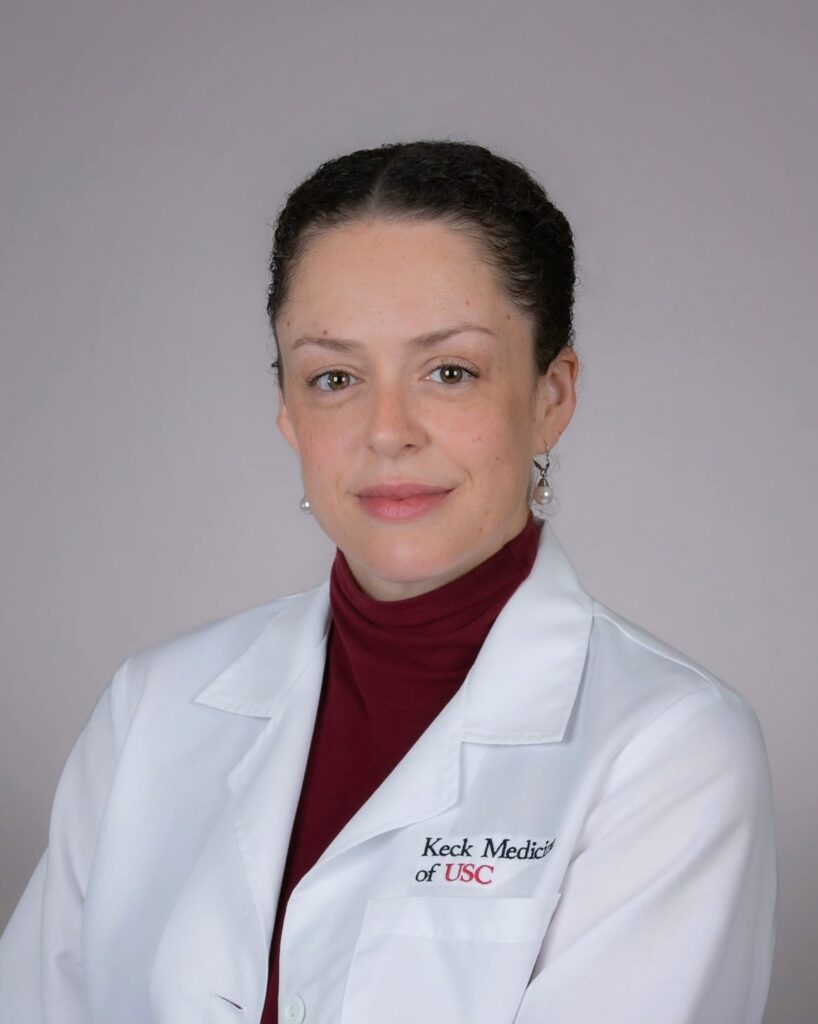
Dr. Ana Maretti Garcia is an Assistant Professor of Research Medicine at the University of Southern California (USC), Department of Medicine, GI and Liver Division. Her research focuses on the immunological aspects of chronic liver diseases, particularly metabolic-associated steatotic liver disease (MASLD) and hepatocellular carcinoma (HCC).
Dr. Maretti Garcia has extensive experience in single-cell RNA sequencing (scRNA-seq) technology, which she utilizes to investigate transcriptomic differences among hepatic cell populations and their responses to liver disease. She has pioneered the integration of 3D human liver spheroids with single-cell transcriptomics to study the impact of environmental pollutants, such as PFAS, on MASLD onset and HCC progression. More recently, she has expanded this innovative in vitro-in silico framework to examine PFAS-induced effects on renal cell carcinoma (RCC) using human kidney spheroids and scRNA-seq.
Through her interdisciplinary expertise, Dr. Maretti Garcia aims to advance our understanding of how environmental risk factors contribute to liver and kidney cancers, ultimately supporting the development of novel therapeutic strategies.
Pope, Jillian
Florida A&M University

Dr. Pope is an Assistant Professional at Florida A&M University. Her research interests include investigating the mechanisms that contribute to inflammation and tumorigenesis and drive the progression of primary carcinomas to metastatic lesions with the goal to identify potential targets and routes of therapies. Particularly, her focus lies on the molecular and microbial factors that influence intestinal disease, such as inflammatory bowel diseases (IBD) and colorectal cancer.
Dr. Pope’s training has included using mouse models of IBD and cancer (including spontaneous and colitis induced models), as well as germ free/gnotobiotic models used in microbiome research. Her expertise also includes zebrafish, 2D and 3D cell culture, flow cytometry, and microbiome techniques (next-generation sequencing) to investigate epithelial transformation and host-microbe interactions. Dr. Pope recently joined CaRE2 as an Early Stage Investigator.
Parker, Ivana
University of Florida
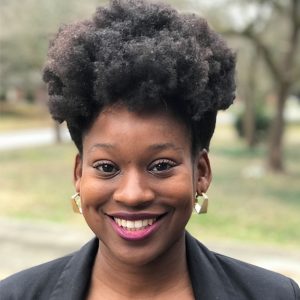
Ivana is a Fulbright Scholar who recently completed a year-long study at the University of Cape Town in South Africa. Her project assesses the risk of a commonly used TB vaccine, BCG, on HIV susceptibility in infants using proteomics and systems biology approaches.
Parker completed a two-year postdoctoral fellowship as an American Society for Microbiology Postdoctoral Fellow at the Centers for Disease Control within the Division of HIV/AIDS Prevention. At the CDC, she evaluated the impact of antiretroviral therapy (ART) on diagnostic assay approaches and identified trends to optimize assay design.
Gbadamosi, Mohammed
University of Florida
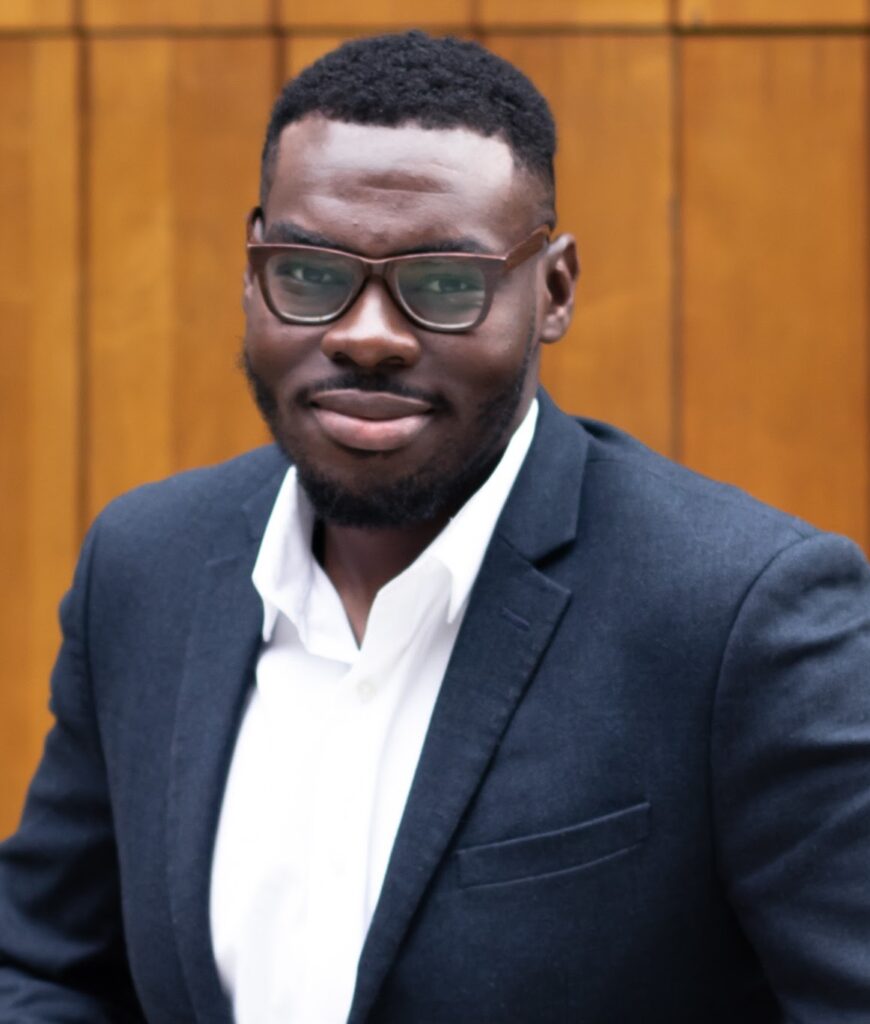
Dr. Mohammed Gbadamosi is an NIH T32 Postdoctoral Fellow in the Program for Applied Research and Development in Genomic Medicine (PARADIGM) at the University of Florida College of Pharmacy. Under the mentorship of Dr. Duane Mitchell, Dr. Gbadamosi currently leads projects focused on employing computational and molecular approaches to optimize immunotherapeutic treatment strategies for metastatic triple-negative breast cancer. His long-term goals are centered on achieving two objectives: (1) establishing a collaborative multidisciplinary research group that conducts translational research focused on optimizing cancer treatment strategies and (2) serving the next generation of trainees and students as a mentor, providing advocacy, opportunities, and experiences that enable them to succeed. Prior to his postdoctoral training, Dr. Gbadamosi received his PhD at the University of Florida where the project he led in the context of pediatric leukemia yielded several peer-reviewed publications, a patient, and several local and national awards including selection as an American Foundation for Pharmaceutical Education Fellow.
With a natural aptitude for leadership, Dr. Gbadamosi also served his community in various capacities including establishing the College of Pharmacy Graduate Student Council, serving on the College of Pharmacy Dean’s Leadership Council, and contributing to the establishment of the Graduate Education Diversity Champion Award at UF. Dr. Gbadamosi has also mentored several students who have successfully transitioned into pharmaceutical residency, industry positions, and post-baccalaureate programs.
Ngo, Albert
Florida A&M University
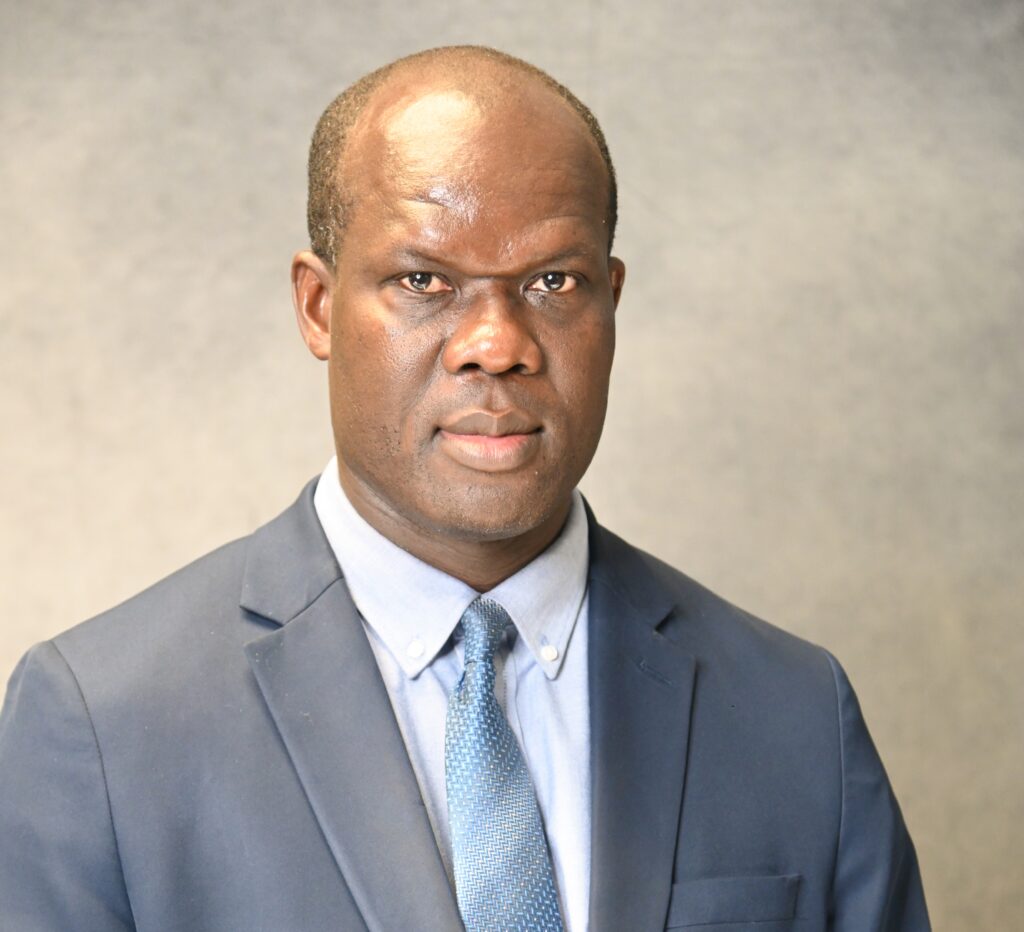
Dr. Ngo received a BS in chemical engineering from the Na-tional Polytechnic Institute Felix Houphouët-Boigny-Yamoussoukro, Cote d’Ivoire in 2008 and his PhD in pharmaceutics and drug design from the University of Missouri-Kansas City, (UMKC), Missouri, United States, in 2018. Dr. Ngo is an Assistant Professor of Pharmaceutics at FAMU, College of Pharmacy and Pharmaceutical Sciences, Institute of Public Health (COPPSIPH). His main research interest is developing Smart (targeted), self-assembly, and functionalized nanoparticles (SSFNs), a novel, selective, and innovative delivery system targeting Pros-tate-specific membrane antigen for prostate cancer therapy. Dr. Ngo loves reading, writing, and spending time with his family.
Mendonca, Patricia
Florida A&M University
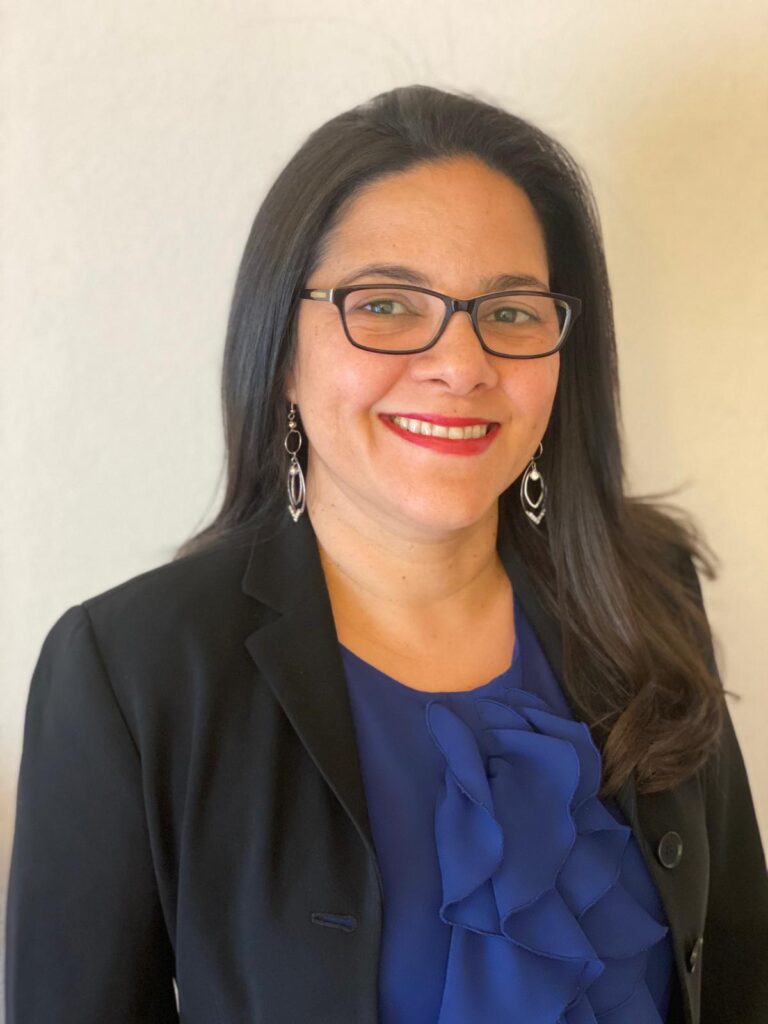
Dr. Mendonca currently is the manager of the U54 RCMI PCR, Epigenetics Facility at Florida A&M University, where she is involved in research projects associate to molecular biology and protein analysis linked with oxidative stress, chronic inflammation, neurodegeneration and cancer. Dr. Mendonca currently serves as an Assistant Professor of Biology and Physiology & Anatomy in the Department of Biology at the College of Science and Technology. Her interest in biomedical and health disparities research started during her Ph.D. studies at Florida A&M University.
Whitner, Chardae
University of Florida

Dr. Chardaè Whitner joined the University of Florida College of Pharmacy at the Jacksonville Campus in 2021 as a clinical assistant professor. She also serves as the Jacksonville Campus Coordinator for the Office of Accessibility, Belonging and Community Health. Whitner received her Bachelor of Science from the University of South Carolina and Doctor of Pharmacy degree from Lake Erie College of Osteopathic Medicine. Following graduation, she pursued postgraduate training, completing a community-based pharmacy residency with the University of Florida College of Pharmacy in Jacksonville.
Whitner’s professional areas of interest include diversity, inclusion, health equity, bias, mitigating health disparities among underserved populations, improving health literacy, in addition to increasing cultural awareness and appropriateness among health care professionals.
Ali, Askal
Florida A&M University
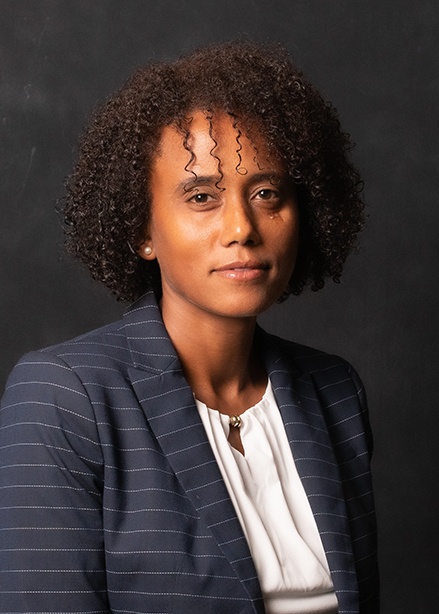
Askal Ali, PhD, is an Assistant Professor in the College of Pharmacy and Pharmaceutical Sciences, and Fatimah Sherbeny, Assistant Professor, Economics, Social and Administrative Pharmacy, College of Pharmacy and Pharmaceutical Sciences, at Florida A&M University. Dr. Ali is a CaRE2 Early Stage Investigator.
Vilaro, Melissa
University of Florida

Dr. Melissa Vilaro, PhD, MPH, CPH, is a social behavioral scientist whose research incorporates community-based approaches to develop strategic messaging and behavior change strategies for chronic disease prevention. Her research largely addresses the social and environmental determinants of diet among vulnerable groups, including children, low-income, and rural populations to mitigate diet-related health disparities. Dr. Vilaro’s current research is supported by a NIH, National Cancer Institute, Diversity Supplement and will focus on developing a culturally-relevant interactive nutrition-risk module for an existing eHealth colorectal cancer screening intervention.
Mailhot Vega, Raymond
University of Florida
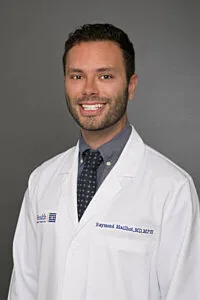
Dr. Raymond Mailhot is an assistant professor in the Department of Radiation Oncology at the University of Florida. His areas of treatment and research include proton therapy for pediatric cancer, breast cancer and lymphoma. He completed his undergraduate and medical training at Washington University in St. Louis and post graduate training at Harvard University and New York University, where he served as Chief Resident. He has published multiple research articles in peer-reviewed medical journals and presented research at international medical conferences. His academic and professional honors include the J. Max Rukes Full Tuition Merit Scholarship, Washington University School of Medicine; Merit Scholarship, Harvard School of Public Health; Jonathan Mann Foreign Rotation Fellowship Award; and American Society of Clinical Oncology Conquer Cancer Fellowship Award. He serves on committee for the American Society for Radiation Oncology. He is a national board member on the Hodgkin Lymphoma Committee of Children’s Oncology Group.
Rogers, Sherise
University of Florida

Sherise C. Rogers, M.D., M.P.H., received her bachelor’s degree from Cornell University in 2009 in Human Development with a minor in Biological Sciences. She then obtained her Medical Doctorate in 2014 and Master in Public Health in 2015 from New York Medical College.
Dr. Rogers completed her Internal Medicine Residency at Stony Brook University Medical Center in New York in 2017. She completed her Hematology & Oncology Fellowship at The Ohio State University Medical Center where she also served as Wellness Chief Fellow in 2020. Aside from her educational achievements, Dr. Rogers has a passion for mentoring and has completed many professional development programs such as the Physician Leadership Academy and Medical Journalism elective at the ABC News Medical Unit in New York City.
Her peer reviewed publications and presentations have concentrations in gastrointestinal oncology, diversity and inclusion, physician wellness and strategies to address burnout among hematology and oncology trainees. She is a member of many professional memberships such as the ASCO and AACR.
Dr. Rogers is the Principal Investigator for the CaRE2 Pancreas Pilot Project. Dr. Rogers is an early stage physician-scientist and Assistant Professor at University of Florida with expertise in gastrointestinal oncology with specialization in pancreatic cancer. She will be responsible for performing clinical correlations for this project.
Algaze, Sandra
University of Southern California
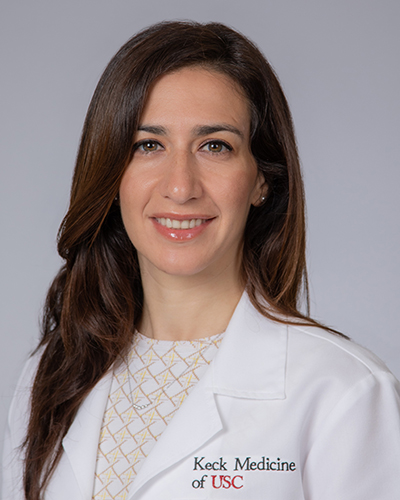
Dr. Sandra Algaze is an Assistant Professor of Medicine in the Division of Medical Oncology at the University of Southern California focusing on gastrointestinal cancers. Dr. Algaze completed her residency in Internal Medicine at the University of Miami, Jackson Memorial Hospital and her clinical fellowship in Hematology and Oncology at University of Southern California, Los Angeles County Hospital, where she served as a chief fellow.
Her research endeavors focus on the discovery of innovative pathways in cancer pathogenesis, metastases and treatment resistance, the development of novel therapies for gastrointestinal tumors, and the assessment of predictive and prognostic biomarkers and molecular profiles. Additionally, she is actively investigating and working to address the complexities surrounding the care of older patients with cancer, and healthcare disparities arising from barriers to specialty care access and the underrepresentation of minorities in cancer clinical trials. Notably, she was part of the inaugural cohort of the Robert A. Winn Diversity in Clinical Trials: Career Development Award (Winn CDA).
Ali, Jamel
Florida A&M University
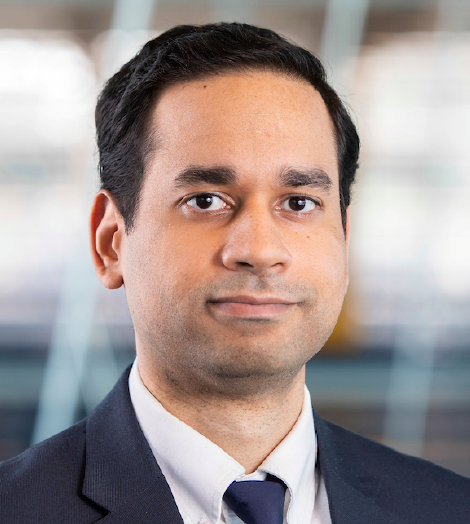
Dr.Ali is currently an Assistant Professor of Chemical and Biomedical Engineering at Florida A&M University–Florida State University (FAMU-FSU) College of Engineering in Tallahassee. He also holds an affiliation in the Condensed Matter Science group at the National High Magnetic Field Laboratory. Prior to joining FAMU-FSU in 2018, he served as the Chief Technology Officer at Acrogenic Technologies in Rockville, MD. He received his B.S. and M.S. degrees in Chemical Engineering from Howard University, and his Ph.D. in Mechanical Engineering and Mechanics from Drexel University. His research is focused on the development of self-assembled nanobiomaterials for regenerative medicine, sensing, actuation, and transport applications. He recently received the NSF Research Initiation Award for research on intracellular nanoprobes. In 2021 he was named by Chemical & Engineering New as a Black ‘Trailblazer’ in chemistry and chemical engineering. He is currently mentoring a URM FAMU CaRE2 biomedical engineering Ph.D. student, Annie Scutte.
Cousin, Lakeshia
University of Florida

Dr. Cousin’s teaching responsibilities focus on the BSN and DNP programs and mentoring undergraduate and graduate nursing students. Her teaching and mentoring philosophy are inspired by her dedication to health equity and diversity and to preparing future nurses to become leaders in social change.
Dr. Cousin is a nurse scientist who bridges health equity, behavioral medicine, and psychosocial support to research improvements in breast cancer survivorship for underserved populations. Significant scientific contributions include creating culturally-tailored interventions with a biopsychosocial approach to understand how protective factors can promote resilience, reduce stress, and improve physical health outcomes (e.g., inflammatory biomarkers, cardiometabolic risk) and behaviors. Additional funded research includes developing a community-engaged nurse development and retention program to empower underrepresented high school students to enter nursing. Dr. Cousin is a 2022-2024 awardee of the OAIC/NIA Pepper Scholar and UF CTSI Scholar grant awards to support her research efforts.
Thomas, LeeShawn
Florida A&M University

Dr. LeeShawn D. Thomas is a CaRE2 Early Stage Investigator and Associate Professor in the Department of Biological Sciences at Florida A&M University. Dr. Thomas received his BS and MS from Florida A&M University and his PhD in Immunology & Cancer Research from Tennessee State University. He completed his postdoctoral fellowship at Vanderbilt Medical Center in the Division of Hematology/Oncology.
Booker, Staja
University of Florida

Dr. Staja “Star” Booker is a tenure track Assistant Professor in Behavioral Nursing Science in the college of Nursing at the University of Florida. She is health disparities nurse scientist focused on attenuating disparate health in older African Americans (AAs) by understanding the brain-biology-belief-behavior connections underpinning chronic pain mechanisms and self-management. Her past research has involved identifying disparities in the implementation of best practices for cancer pain management in older adults at the end-of-life, and her current work is characterizing movement-evoked pain and function in AA older adults with knee osteoarthritis. The aim of her program of research is to advance the science of pain by exploring overlapping pain conditions, with the ultimate goal to reduce the burden of the total chronic pain experience in older AAs. Significant contributions include developing the first nursing clinical practice recommendations and a model for pain assessment in older AAs. An engaged scientist, she has contributed to numerous peer-reviewed articles, book chapters, research abstracts, and scientific presentations. Dr. Booker has received several awards that denote the applicability of her research to practice. She was recognized as a “2018 Great 100 Nurses of Louisiana”. Additional commendations include publication awards for best aging papers; Robert Levitt Award for Research in Aging; Dissertation Award from Midwest Nursing Research Society; and Outstanding Young Alumni Beacon Award from Grambling State University. She received a K23 award (AR076463-02) entitled “Investigating movement-evoked pain in osteoarthritic conditions (IMPACT): an observational study to inform culturally-tailored intervention development”
Diaby, Vakaramoko (Karam)
University of Florida
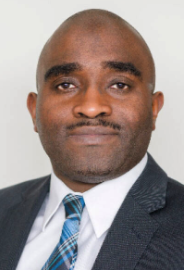
Dr. Diaby is an Assistant Professor in the Department of Pharmaceutical Outcomes and Policy, College of Pharmacy, University of Florida. He also serves as the Track Director in Applied Pharmacoeconomics for the Online Masters in POP. Dr. Diaby is a subject matter expert in the field of Health Economics and Decision Science. His main research interests are in the field of comparative effectiveness and cost-effectiveness of oncology treatments, with a focus on determinants of health disparities and their integration in value assessments. Dr. Diaby’s research interests also expand to the economic evaluation of pharmacogenomics testing and bridging health technology assessment with shared decision making using multicriteria decision analysis. Over the past year, Dr. Diaby was awarded a grant from the Nicklaus Children’s Hospital Foundation to examine the cost-effectiveness of rapid whole-genome sequencing in critically ill pediatric patients. He recently obtained a grant from Pfizer to examine factors associated with the early discontinuation associated with CDK 4/6 inhibitors in breast cancer patients.
McEachron, Troy A
University of Southern California
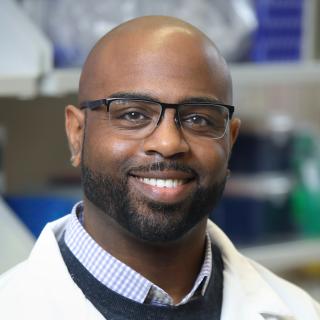
Dr. McEachron’s research focuses on two separate yet complimentary areas: (1) the utilization of next generation genomic, transcriptomic, and proteomic technologies to profile recurrent and/or refractory pediatric, adolescent, and young adult (AYA) cancer patients for clinical decision making; (2) the use of functional genomics to identify and interrogate the developmental and therapeutic aspects of sarcomas that predominantly arise in the pediatric and AYA populations. His overall research interests are a reflection of his diverse training history. His training background in basic science includes the molecular dissection of autocrine and paracrine signaling mechanisms between tumor and host using in vitro and in vivo models and the characterization of genetically engineered mouse models of pediatric brain tumors. Additionally, Troy’s translational science training includes the interpretation and functional validation next generation sequencing data from recurrent/refractory pediatric cancer patients.
Roach, Keesha L
University of Florida
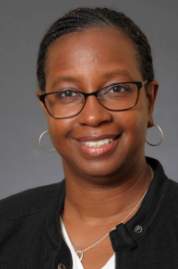
Dr. Roach is now a tenure track Assistant Professor in Behavioral Nursing Science in the School of Nursing at the University of Florida. She was funded for a K01 (HL153210-01) entitled “Contributions of biopsychosocial factors in sickle cell disease pain”
Rhie, Suhn
University of Southern California
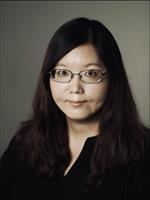
Dr. Rhie received her B.S. in Biochemistry, magna cum laude from the University of California, Los Angeles. She earned her Ph.D. degree in Genetic, Molecular and Cellular Biology from the University of Southern California in 2013. She completed her postdoctoral training in the laboratories of Dr. Peter Laird and Dr. Peggy Farnham. Dr. Rhie participated in Genome-Wide Association Studies (GWAS) in different cancer types, unraveling mechanisms that explain how genetic variants affect disease risks. Dr. Rhie characterized heterogeneous tumor tissues as a leader of DNA methylation analysis for The Cancer Genome Atlas (TCGA) Consortium and discovered how genetic alterations such as somatic mutations, fusions, copy number variations are associated with epigenetic changes in cancer. She has also led epigenomic data analysis to investigate how transcription factors act at regulatory elements in a 3D nucleome structure in cancer and psychiatric diseases as part of the ENCODE and PsychENCODE Consortia.
Her current research interests are to characterize key transcription factor and understand roles of regulatory elements activated in different types of cancers and neurodevelopmental diseases. By using both molecular biology and bioinformatics to address how genes are regulated in 3D nucleome structure (e.g. ChIP-seq, RNA-seq, whole genome sequencing, whole genome bisulfite sequencing, NOMe-seq, DNA methylation, Hi-C, CRISPR/Cas9, dCas9-ED systems), her lab is discovering new molecular mechanisms of human diseases that can aid in the development of therapeutics to enhance quality of life for patients.
Emamaullee, Juliet
University of Southern California
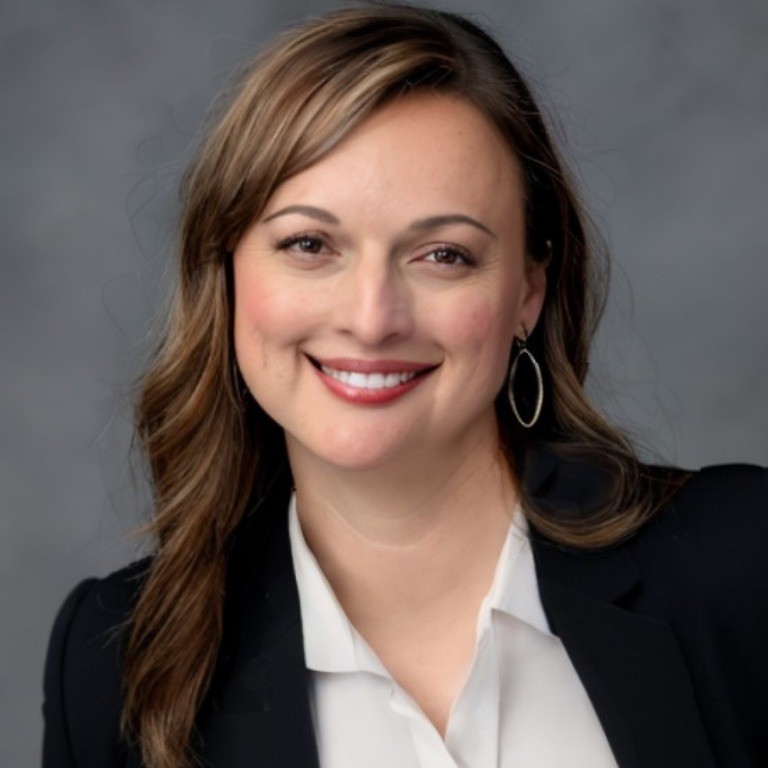
Dr. Emamaullee is an Assistant Professor of Clinical Surgery at the USC Keck School of Medicine and an attending transplant surgeon at Keck Hospital of USC and Children’s Hospital-Los Angeles. She is a surgeon-scientist with a translational immunology lab, with a research focus on immunological phenotypes associated with liver transplant recipients. Dr. Emamaullee’s other research interests include deep analysis of the immune phenotype associated with post-transplant rejection, living donor liver transplantation, disparities in access to liver transplant, Fontan-associated liver disease, and tolerance strategies to improve allograft survival. She recently obtained a K08 award: “Immunological biomarkers of rejection in clinical liver transplantation” (K08 CA24522-10). Dr Emamaullee mentored postbac-CaRE2 student Chante’ Butler.
Farias, Albert
University of Southern California

Dr. Farias is an Assistant Professor in the Department of Preventive Medicine at the University of Southern California. His research is devoted to helping eliminate racial/ethnic disparities in cancer outcomes by furthering the understanding of how the provision of medical care contributes to racial/ethnic disparities in cancer incidence and outcomes. He has applied his academic training with a unique perspective as a first-generation college graduate to 1) explain the existence of racial/ethnic health disparities and 2) identify health inequities in cancer care.
Fredenburg, Kristianna
University of Florida

Dr. Fredenburg is an Assistant Professor in the Department of Pathology, Immunology, and Laboratory Medicine at the University of Florida who specializes in the pathologic diagnosis of Head and Neck and Cardiothoracic diseases. Her goal as a physician-scientist is to impact the treatment and management of head and neck cancer. Her primary research focus seeks to uncover the molecular basis of racially disparate clinical outcomes seen in patients with head and neck squamous cell carcinoma. Dr. Fredenburg has mentored 2 CaRE2 postbacs, James Menefee and Chayil Lattimore.
Hill, Reginald
University of Southern California

Dr. Hill is an Assistant Professor of Medicine at the Keck School of Medicine of USC and the Lawrence J. Ellison Institute for Transformative Medicine at USC. He uses novel mouse models, human clinical samples, and newly-established assay systems to elucidate how the microenvironment or inflammation contributes to pancreatic cancer initiation, progression to metastasis, and therapeutic resistance.
Mason, Jeremy
University of Southern California
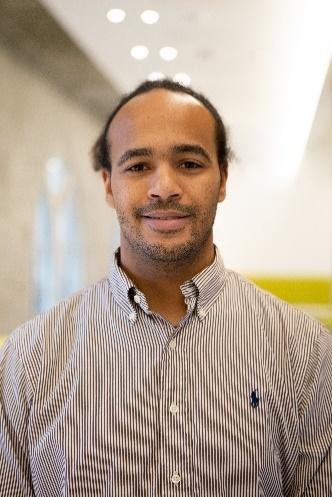
Dr. Mason is an Assistant Professor of Research in the Department of Urology at the Keck School of Medicine of USC. His efforts are focused on developing predictive models from longitudinal clinical, demographic, and research data to predict disease-related events throughout the course of disease and treatment on an individual patient basis. Simultaneously, he is also a research fellow with the United States Food and Drug Administration (FDA), where he will apply these techniques to phase 3 clinical trial data for approved cancer therapies.
Scarton, Lisa
University of Florida
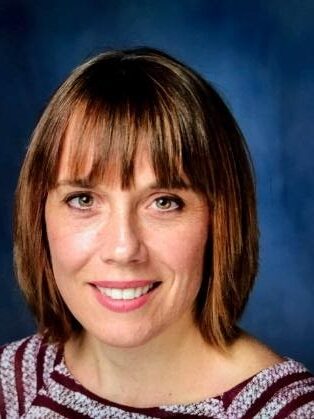
Dr. Scarton completed a PhD in Nursing with a minor in Gerontology at the University of Indiana and her post-doctoral training at the University of Florida, College of Nursing and recently accepted a faculty position as an assistant professor. Her long-term research goals are to reduce type 2 diabetes (T2D) and cancer health disparities and improve health outcomes in underserved populations, with a special focus in the American Indian populations. Her research emphasizes the importance of the entire family on prevention and management of chronic illnesses. A strong link exists between T2D and several forms of cancer; therefore, she has extended her research to cancer and T2Ds. Patients with active cancer and T2D face challenges in polypharmacy, treatment complications, and poor glycemic control. Undiagnosed or poorly managed T2D has been associated with advanced stage cancer at diagnosis, higher rates of mortality, and lower rates of long-term all cause survival. Given the associations among T2D and cancer treatment and survival rates it is imperative to detect and appropriately manage T2Ds in persons with cancer.
Saenz, Joseph
University of Southern California
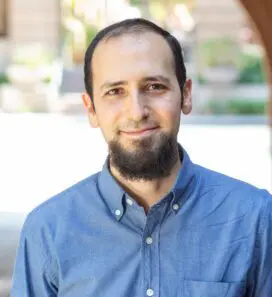
Joseph Saenz, PhD, is an Adjunct Assistant Professor of Gerontology. Saenz’s research is broadly focused on both understanding and explaining disparities in late-life cognitive outcomes among older adults. Particularly, he focuses his research on the roles of life-course socioeconomic position, marriage, and environmental exposures throughout the life-course. He is especially interested in the health of the Mexican-American population in the United States and investigates cross-national differences in aging processes across the globe.
His current research projects focus on the life-course pathways through which educational attainment influences late-life cognitive health, how indoor air pollution relates with cognitive function, and how characteristics of marriage may influence cognitive function and depression among older adults.
Smiley, Sabrina
University of Southern California

Dr. Sabrina L. Smiley, Ph.D., M.P.H., MCHES, is an Assistant Professor of Research in the Department of Preventive Medicine and the Institute for Health Promotion and Disease Prevention Research at the Keck School of Medicine. Her research employs qualitative and quantitative research methods to examine the connections between risk behaviors, socio-environmental conditions, disease prevalence, and health disparities. Major foci of her work include: (1) tobacco marketing in neighborhoods by race/ethnicity; (2) tobacco use among key population groups (e.g., African Americans, American Indian/Alaska Natives, LGBT, low socioeconomic status, youth); (3) tobacco regulatory science and policy; and (4) leveraging technology to identify substance use and HIV risk behaviors. She is planning her R-type grant applications.
Smith, Ukamaka "Amy"
Florida A&M University
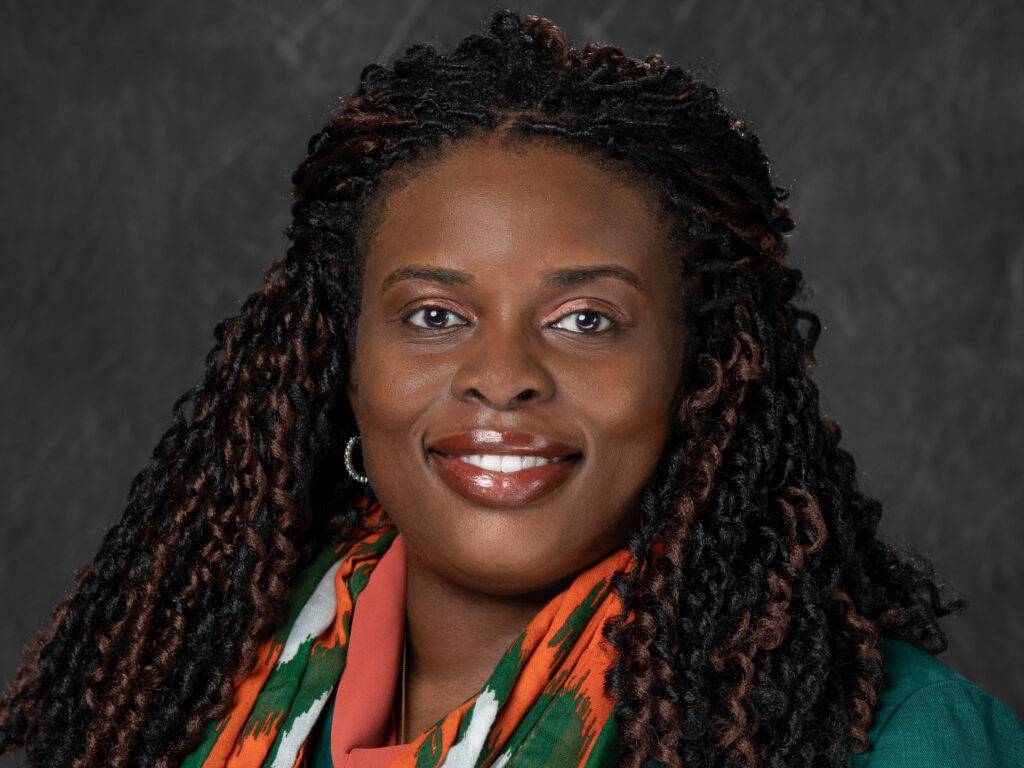
Dr. Ukamaka Smith PharmD., MBA is an assistant professor at Florida A&M University and is the FAMU representative of to the Planning and Evaluation Core.
Oladeru, Oluwadamilola
University of Florida
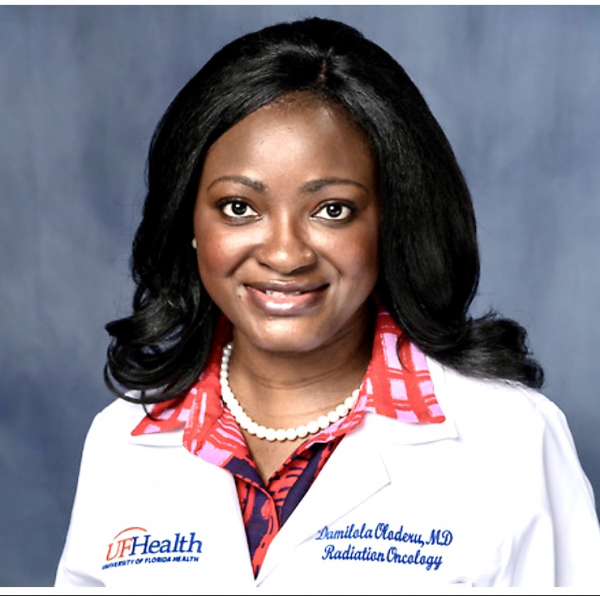
Dr. Oladeru is a radiation oncologist with an expertise in breast cancer treatment. Aside from her clinical practice, Dr. Oladeru devotes her time to pioneering research in radiation oncology. Her recent work focuses on comparative analysis of emerging techniques, particularly the differences between photon and proton therapy. Additionally, she has a keen interest in translational research on triple-negative breast cancer, striving to translate research findings into potential clinical applications. Her commitment to equal healthcare access extends beyond her immediate community. Dr. Oladeru is actively engaged in outreach programs for underserved populations, particularly incarcerated women who are at high risk of breast cancer. Simultaneously, she is dedicated to improving the accessibility of radiation therapy in low-to-middle income countries globally.
Soto, Claradina
University of Southern California

Dr. Claradina Soto is a full-time assistant clinical professor at the Keck School of Medicine of USC in the Institute for Health Promotion and Disease Prevention Research. She teaches undergraduate courses in the Health Promotion & Disease Prevention and Global Health Program and graduate courses in the Master of Public Health program. With more than 15 years working in tobacco control with American Indian and Alaska Native (AI/AN) populations, she has conducted statewide tobacco control work with numerous tribes to provide commercial tobacco education, prevention, cessation services, policy implementation and media campaigns to counter the pro-tobacco influences by the tobacco industry.
Hincapie, Juan
University of Florida
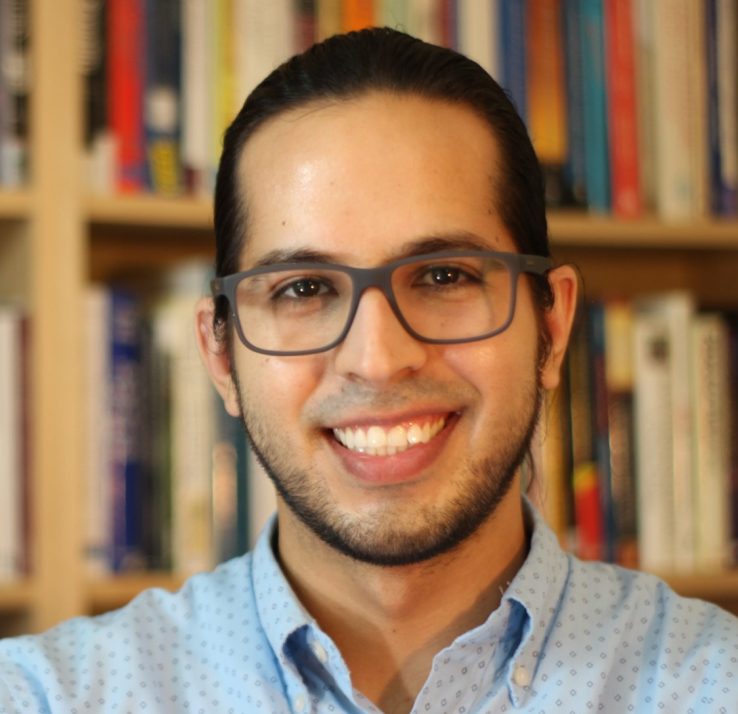
Dr. Hincapie is an assistant professor of Pharmaceutical Outcomes & Policy at the University of Florida. He is a graduate from the University of Florida College of Pharmacy where he received the degrees of Doctor of Pharmacy, Master of Science in Pharmaceutical Sciences, and Ph.D. with a concentration in pharmacoepidemiology. His research is at the intersection of legal and pharmacoepidemiology, where he leverages large real-world data sources to evaluate and promote evidence-based policymaking. His primary focus is on improving prescribing policies and the provision of equitable pain management and safe psychotropic medication use.
Velazquez Villareal, E.
University of Southern California

Dr. Velazquez Villareal’s research is primarily concerned with integrating clinical and genomic data for Precision Medicine. To this end, he applies analyses derived from bioinformatics, statistics, genetics, epidemiology, clinical medicine and public & global health. His current projects include studies of regulation of cellular immunity in humans with specific relevance to understanding transplantation immunity and development of biomarkers for clinical translation that also extend our understanding of immunity and individualized immunosuppressive therapy in transplant patients (pharmacogenomics). In addition to the integrated study of transplantation immunology, he is also involved in highly technical bioinformatics and statistical research, which describes the integration of multiple genome sequencing technologies. Big database management systems is also part of his technical research, it includes the study of NoSQL technologies for the effective management of, heterogeneous and dynamic, clinical and genomic data. As part of all of these research projects, he is applying cutting-edge methods of analysis using the latest tools of functional genomics and molecular immunology. His functional genomics work include the analysis of whole genome transcription profiling from DNA microarrays to deep mRNA sequencing, alternative splicing arrays, microRNA studies (miRNA-seq), high-throughput next generation DNA sequencing (DNA-seq) including targeted sequencing and whole exome sequencing and transcription factor profiling (ChIP-seq), and the epigenetics of immunology at the level of DNA methylation (methyl DNA-seq). Dr. Velazquez Villareal is the USC PI of the BSM Core and he regularly give lectures on bioinformatics for CaRE2 trainees
Trevino, Jose
University of Florida

Dr. Trevino has a significant published record of accomplishment and academic success in basic/translational and clinical research in cancer. His clinical expertise in Surgery and Oncology allows him the significant expertise in helping to oversee the advancement of a formal patient-derived xenograft/organoids. With access to viable tumor tissues and PDX development, he has collaborated with top scientists in the country and has worked on successful NIH and Foundation grant applications in discovery of new proteins contributing to pancreatic cancer tumor progression.
Chamala, Shrikar
University of Florida
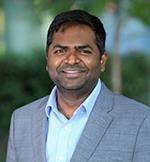
The primary focus of Dr. Chamala’s work is in developing informatics strategies and methodologies for effective implementation of precision cancer medicine. He has been leading clinical bioinformatics and biomedical informatics efforts at UF Health in developing custom next-generation sequencing (NGS) clinical assays, bioinformatics data analysis & management workflows, and solutions for integrating genomic data into health information systems. His scientific contributions have been published in high-impact journals, including Science, Nature, and Genome Biology, and highlighted by news outlets across the globe.
New Investigators
Garcia, Erika
University of Southern California

Dr. Garcia received a PhD and MPH in Environmental Health Sciences from the University of California, Berkeley. She is an Assistant Professor in the Division of Environmental Health of the Department of Preventive Medicine at the Keck School of Medicine of USC. She is an environmental epidemiologist whose research focuses on the role of airborne environmental contaminants in the development of human disease and applies both traditional epidemiologic as well as advanced causal inference methodologies.
Agyare, Edward
Florida A&M University

Dr. Edward Agyare is an Associate Professor of Pharmaceutics at Florida A&M University. His laboratory works with a variety of nanoparticles for imaging and chemotherapy. Dr. Agyare’s CaRE2 collaborative study, with Dr. Jose Trevino at the University of Florida and Dr. Bo Han at the University of Southern California, investigates critical barriers to PCa therapeutics and also define a more personalized therapeutic approach for underrepresented minority PCa patients.
Marconett, Crystal
University of Southern California
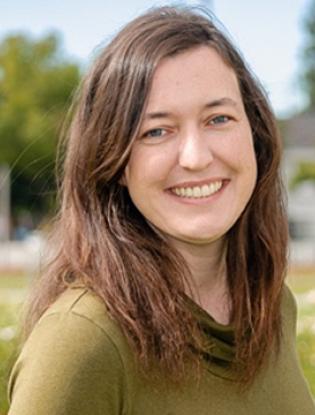
Dr. Marconett is an Assistant Professor in the Departments of Surgery and biochemistry and molecular Medicine at the Norris comprehensive cancer Center at the Keck School of Medicine of USC. Her lab focuses on lung cancer research. She utilize bioinformatic and computational science alongside in vitro experimentation to understand fundamental mechanisms of lung adenocarcinoma disease progression. Her lab focuses is on understanding the contribution long non-coding RNAs play in the development of lung cancers. She has characterized a novel role for lncRNAs in mediation of the DNA damage response, and are keen on translating these basic mechanistic understandings into actionable therapeutic options. Dr. Marconett received an ACS Research Scholar 4-year grant (RSG-20-135-01-RMS) and a 2-year DOD grant (LC200203) this year, and a 27% score ina first submission of an R01. Dr. Marconett has mentored postbac Samantha Joseph.

